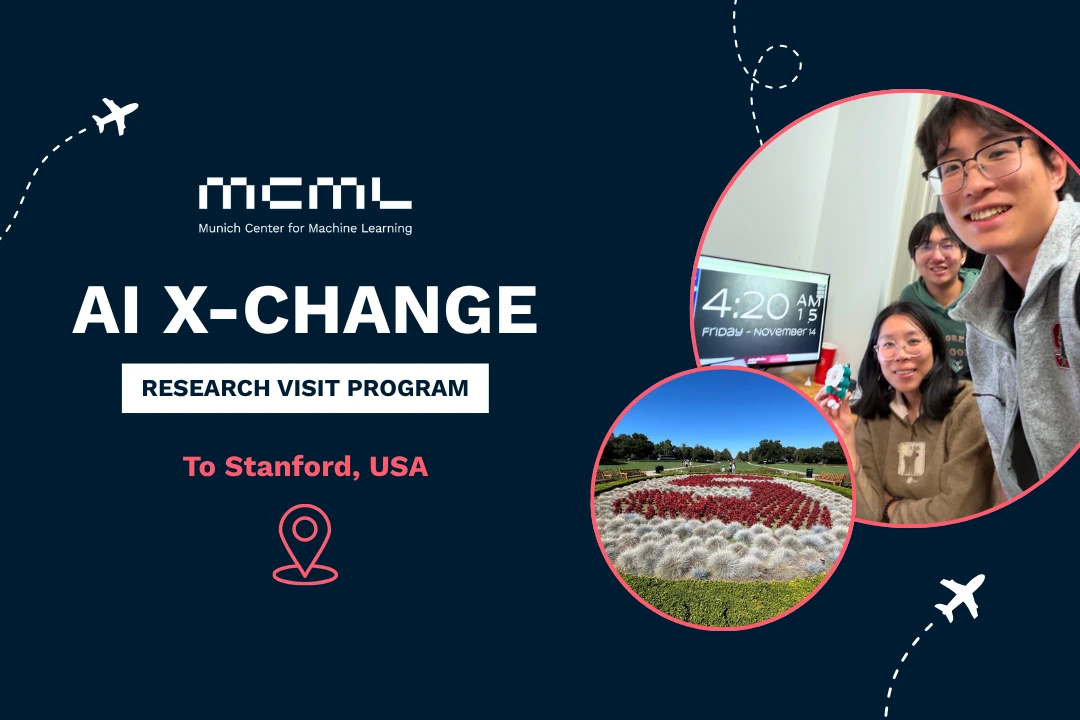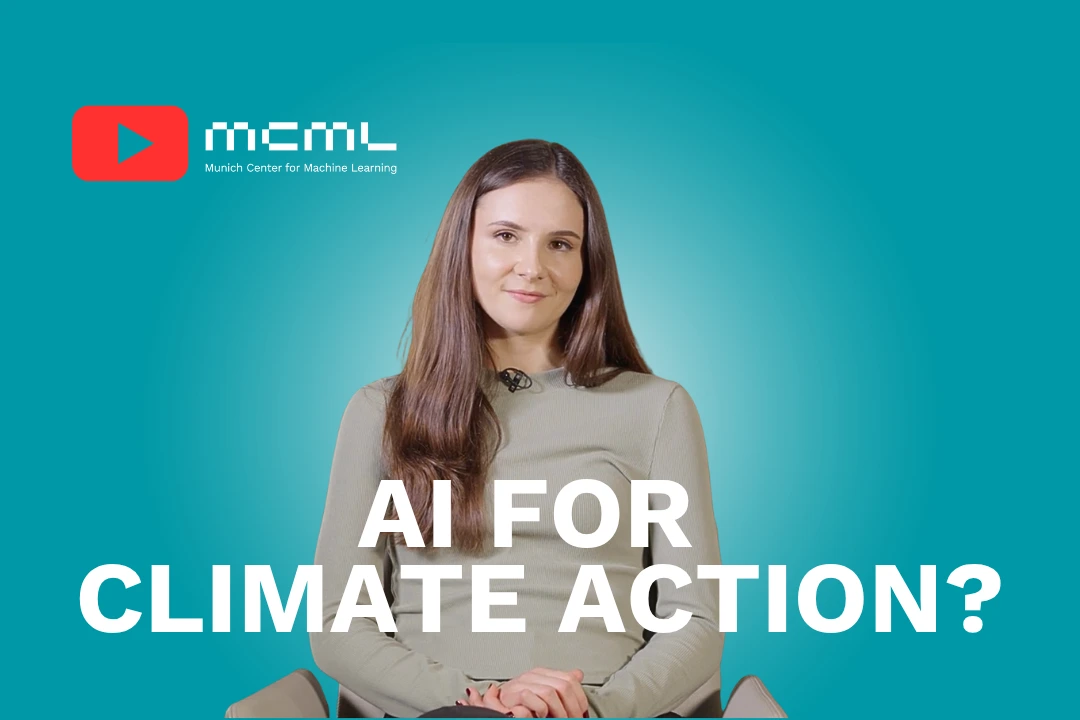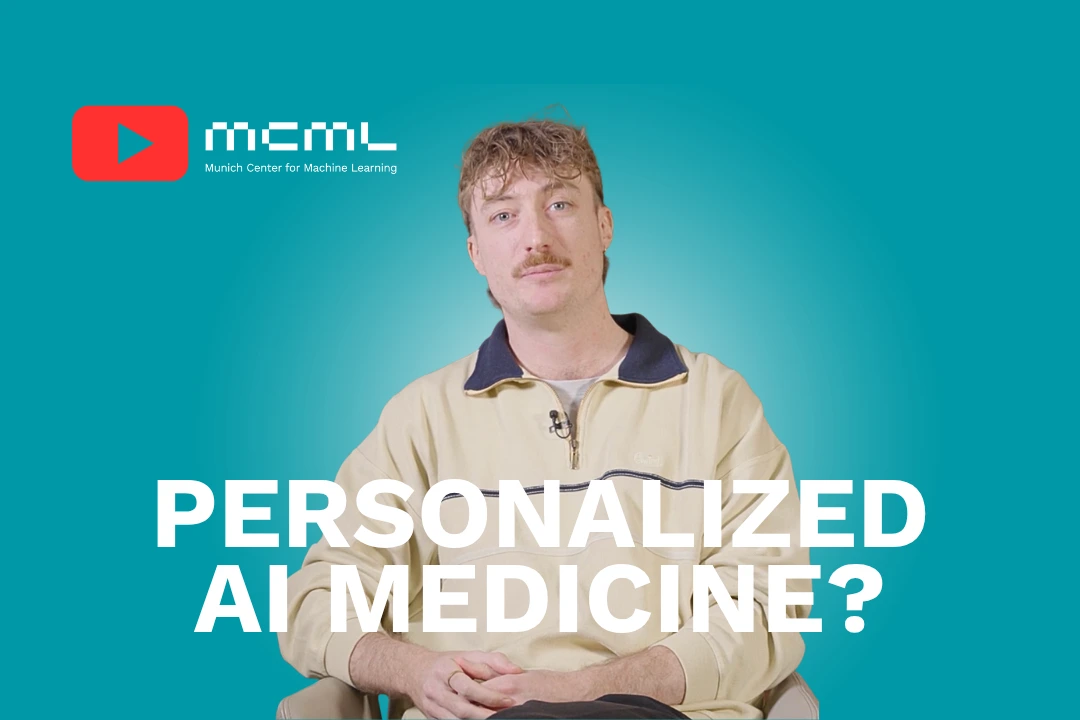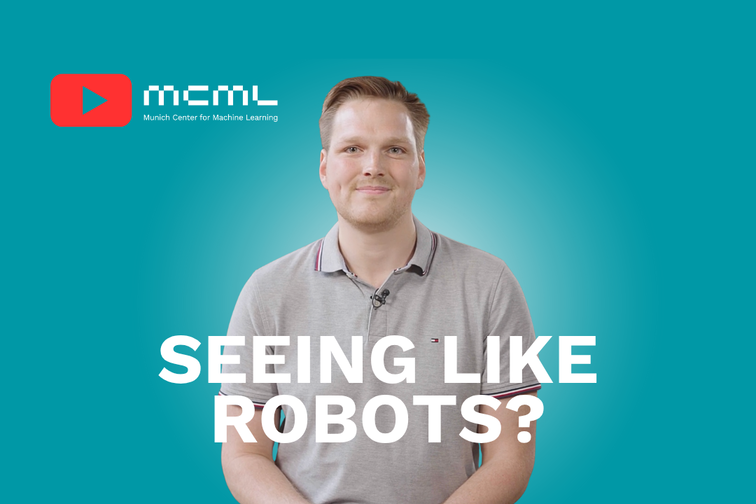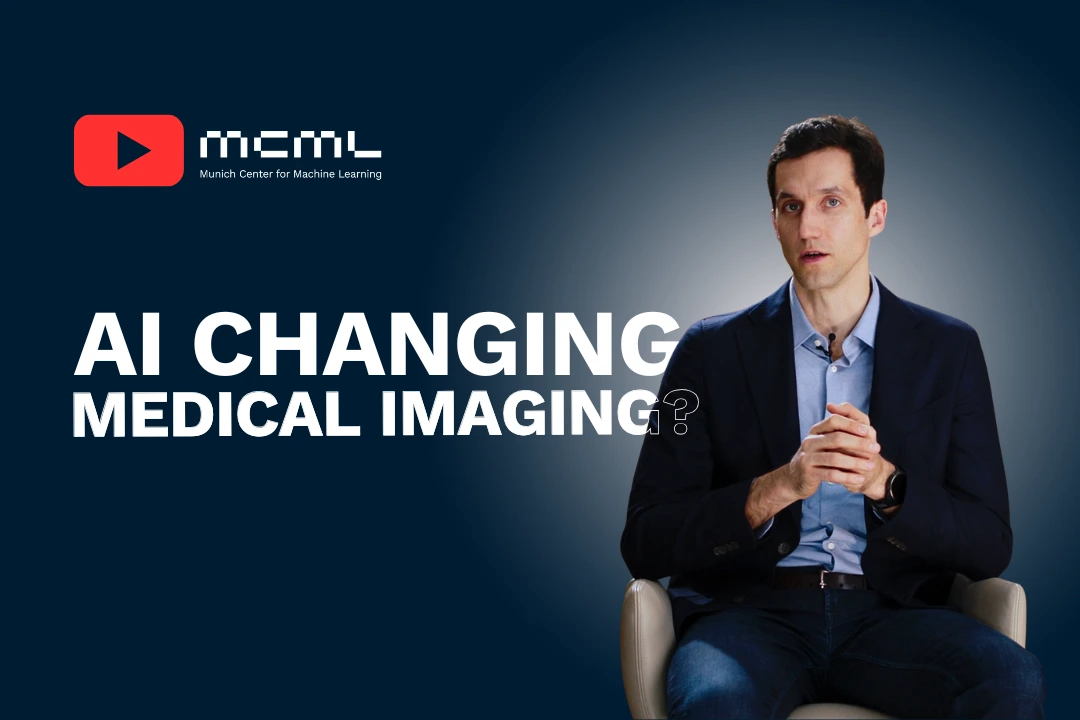Research Blog
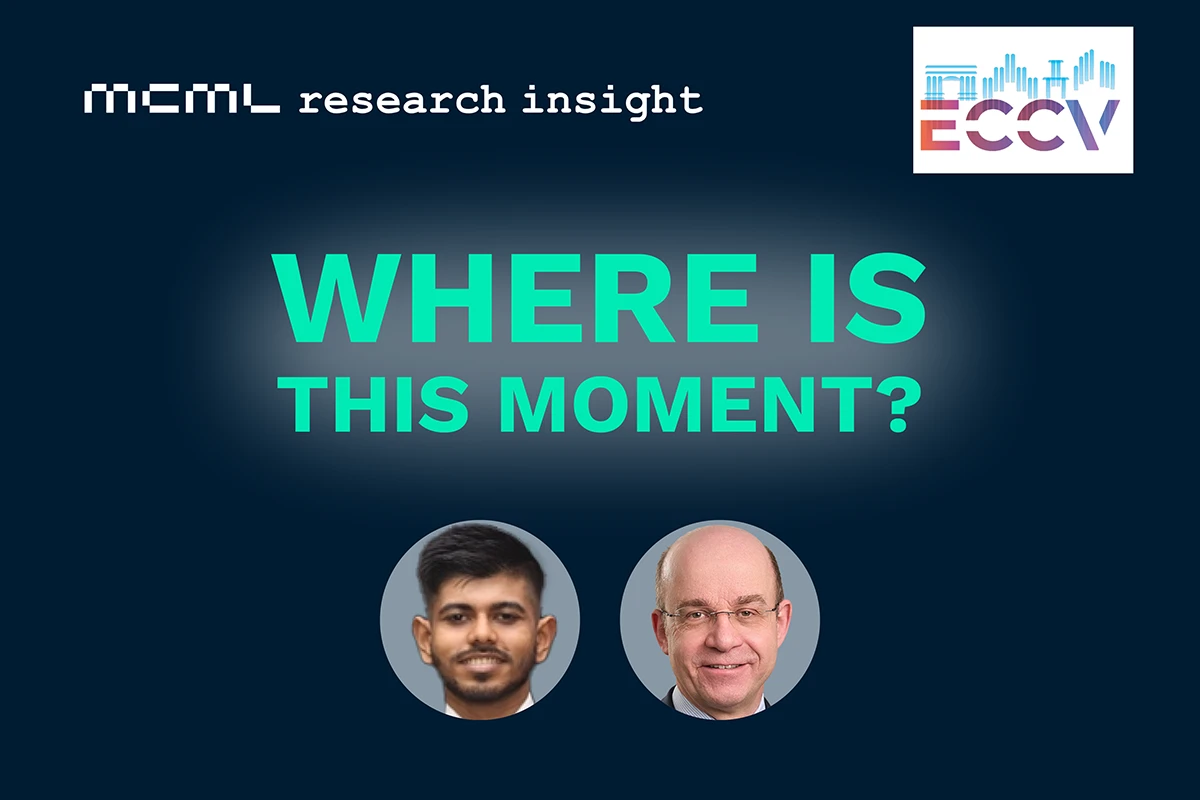
05.02.2026
Needle in a Haystack: Finding Exact Moments in Long Videos
MCML Research Insight - With With Tanveer Hannan and Thomas Seidl
Long videos are everywhere, with footage of movies, YouTube videos, body-cam recordings, and AR/VR often running for tens of minutes or even hours. Now imagine asking a simple question like “Where are …
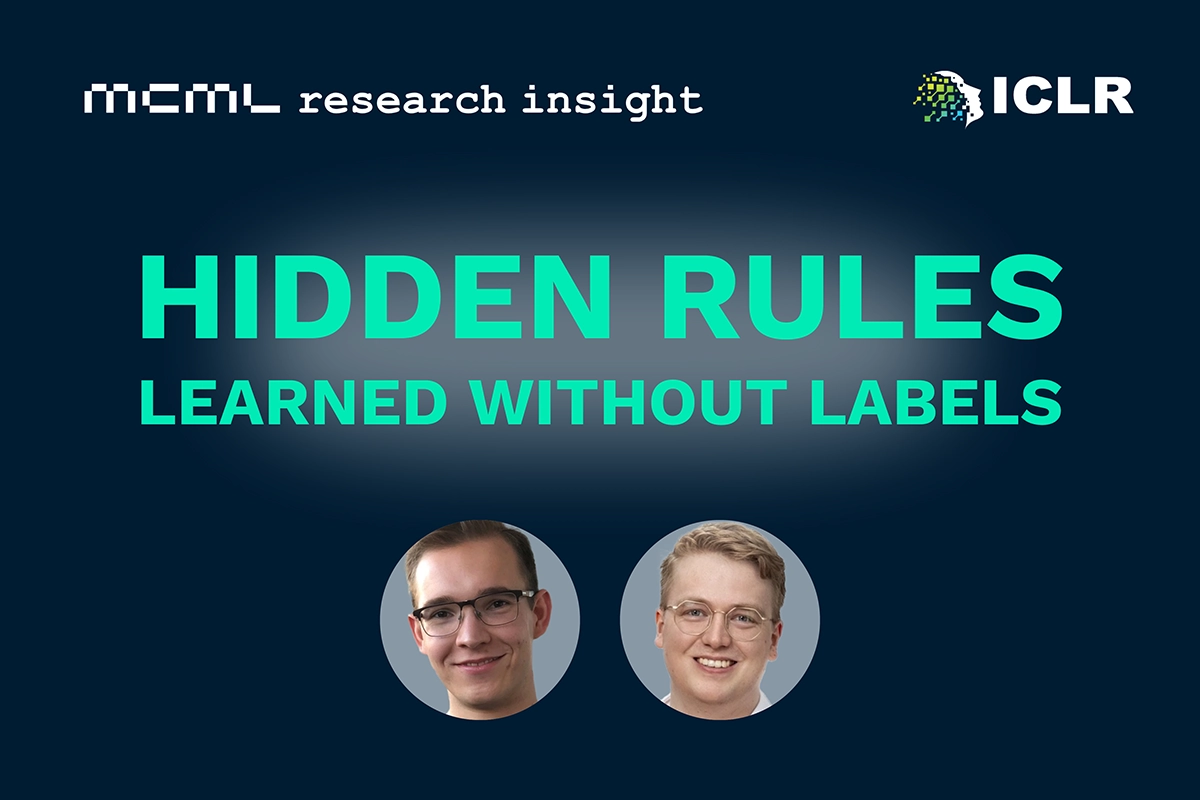
29.01.2026
How Machines Can Discover Hidden Rules Without Supervision
MCML Research Insight - With Tobias Schmidt, and Steffen Schneider
How can machines learn the hidden rules that govern how systems change—how objects move, how weather patterns unfold, or how biological signals evolve—without ever being told what those rules are?
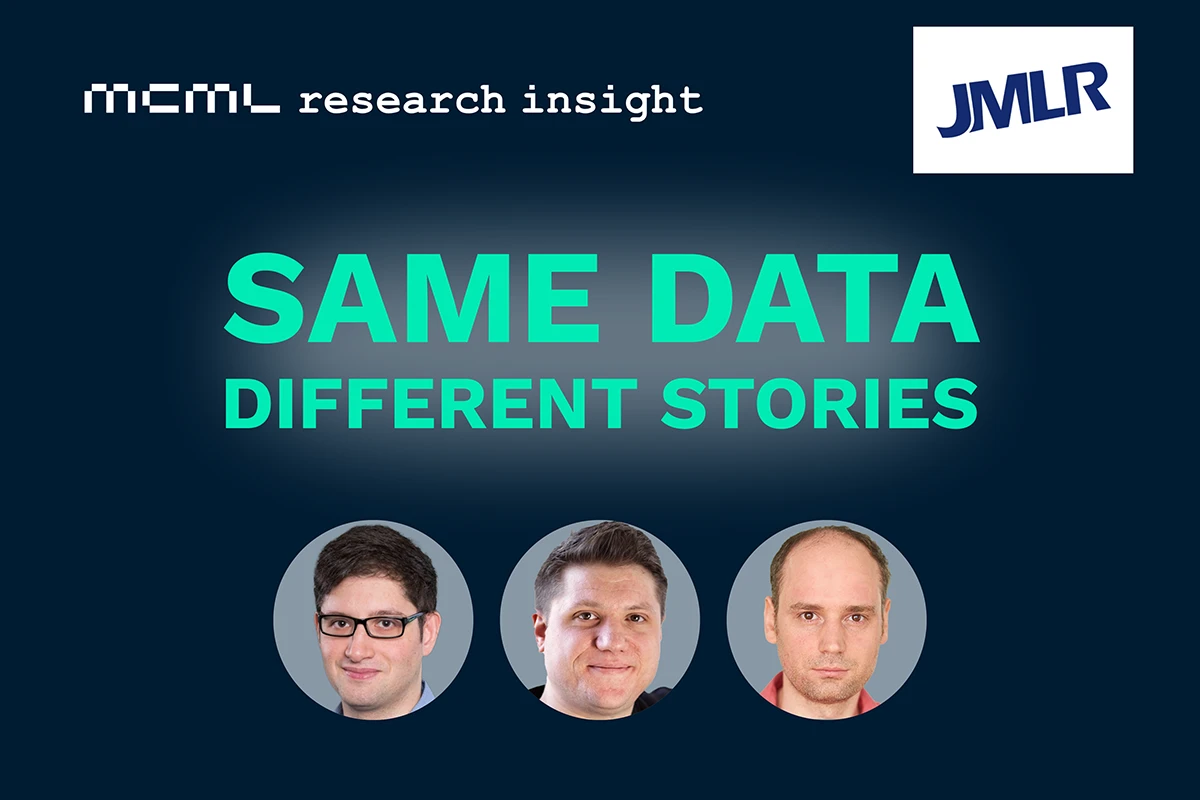
22.01.2026
From Global to Regional Explanations: Understanding Models More Locally
MCML Research Insight - With Giuseppe Casalicchio, Thomas Nagler, and Bernd Bischl
Machine learning models can be powerful, but understanding why they behave the way they do is often much harder. Early global interpretability tools were designed to show how each feature affects the …
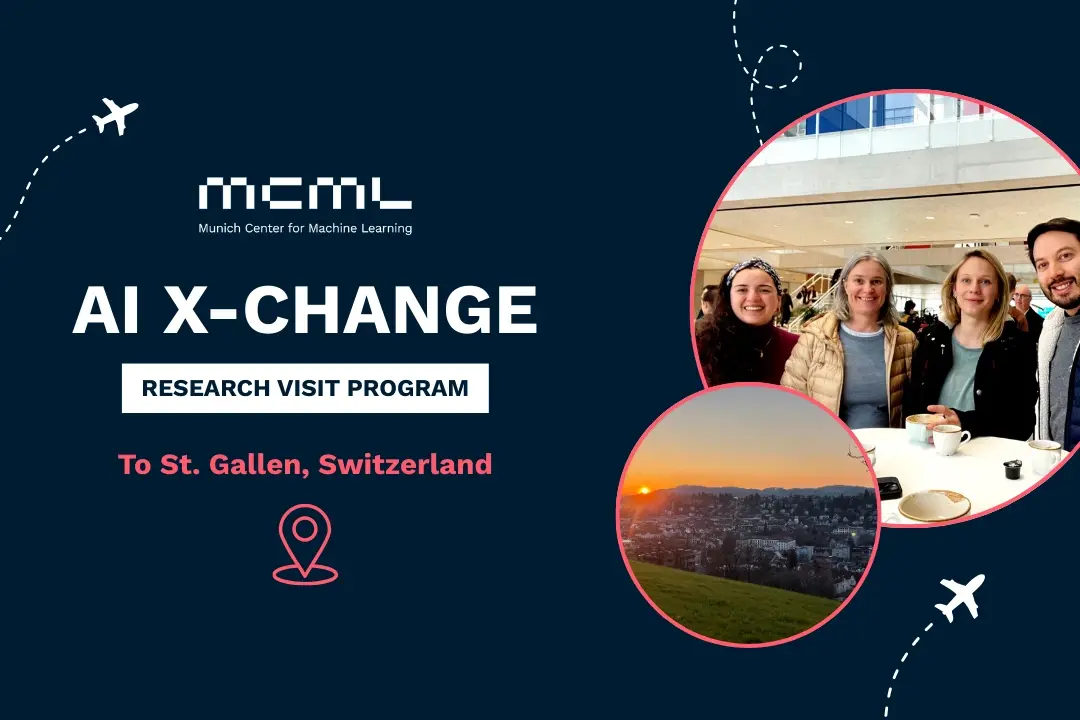
22.01.2026
Research Stay at University of St. Gallen
Andrea Maldonado – Funded by the MCML AI X-Change Program
Between Freudenberg – “happiness mountain” – and Rosenberg – “roses mountain”, I had the pleasure to visit the Institute of Computer Science (ICS-HSG) at the University of St. Gallen (HSG) in …
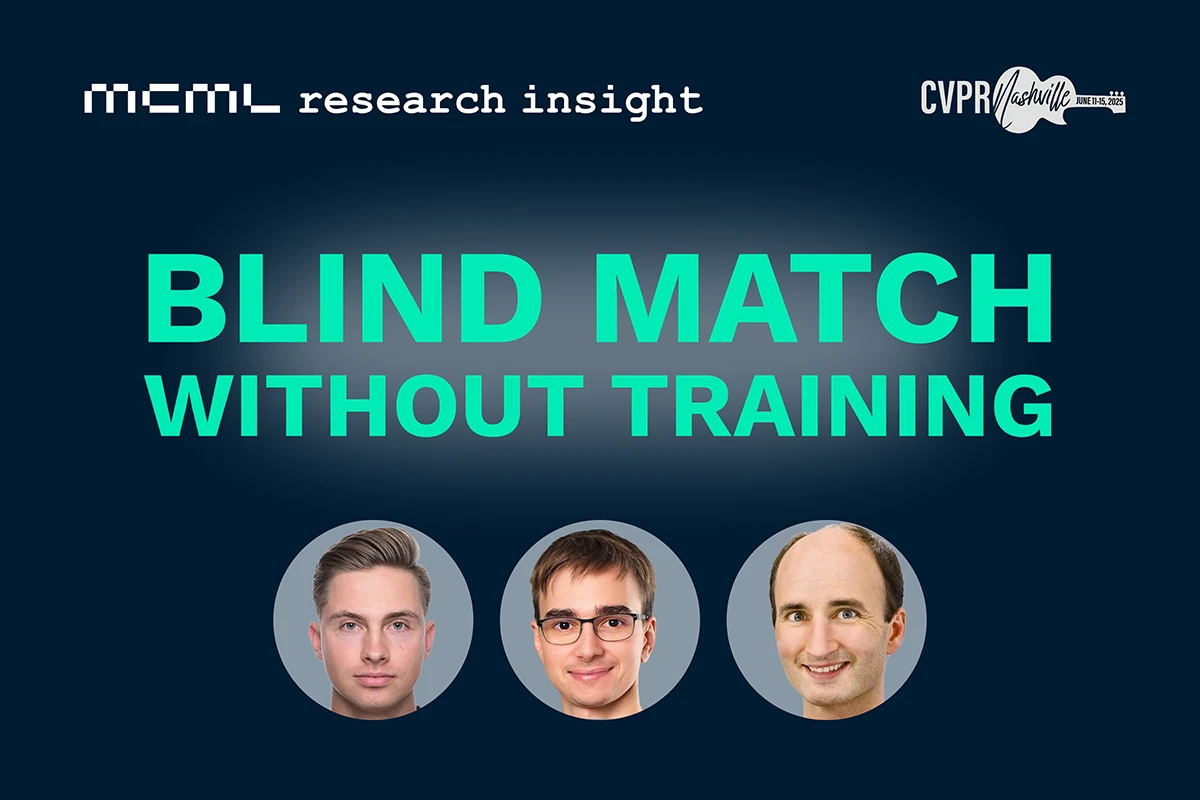
15.01.2026
Blind Matching – Aligning Images and Text Without Training or Labels
MCML Research Insight - With Dominik Schnaus, Nikita Araslanov, and Daniel Cremers
Vision-language models have shown that images and text can live in a shared space: a picture of a “cat” often lands close to the word “cat” in the embedding space. But such …
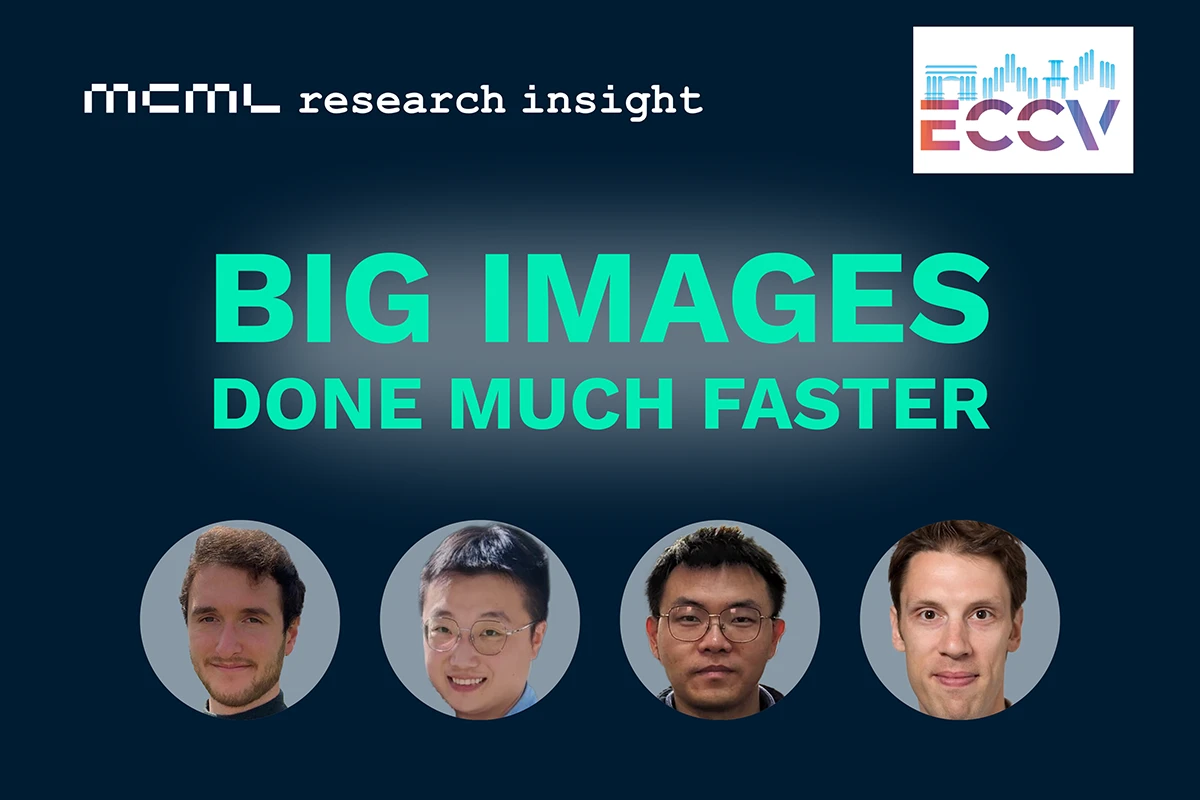
08.01.2026
High-Res Images, Less Wait: A Simple Flow for Image Generation
MCML Research Insight - With Johannes Schusterbauer, Pingchuan Ma, Vincent Tao Hu, and Björn Ommer
Image generation models today can create almost anything, like a futuristic city glowing at sunset, a classical painting of your cat, or a realistic spaceship made of glass. But when you ask them to …
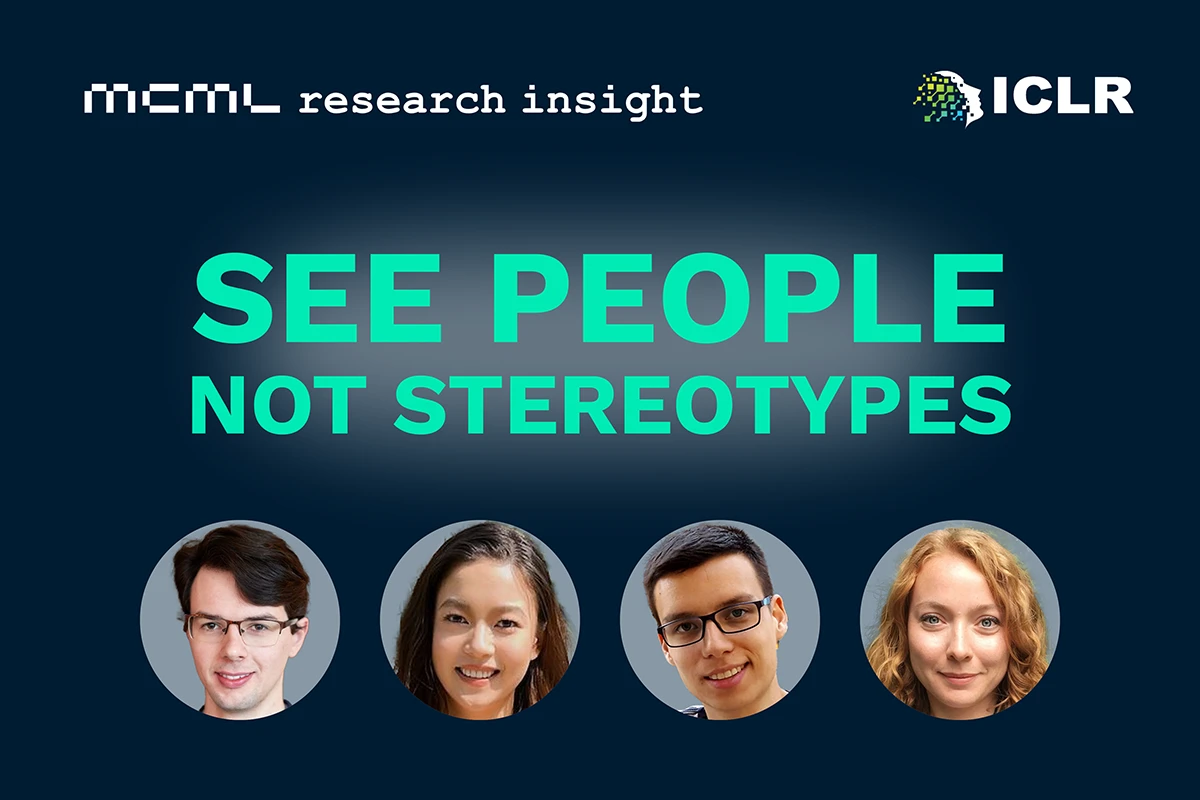
18.12.2025
"See, Don’t Assume": Revealing and Reducing Gender Bias in AI
MCML Research Insight - With Leander Girrbach, Yiran Huang, Stephan Alaniz and Zeynep Akata
Using AI and LLMs at work feels almost unavoidable today: they make things easier, but they can also go wrong in important ways. One of the trickiest problems? Gender bias. For example, if you ask …
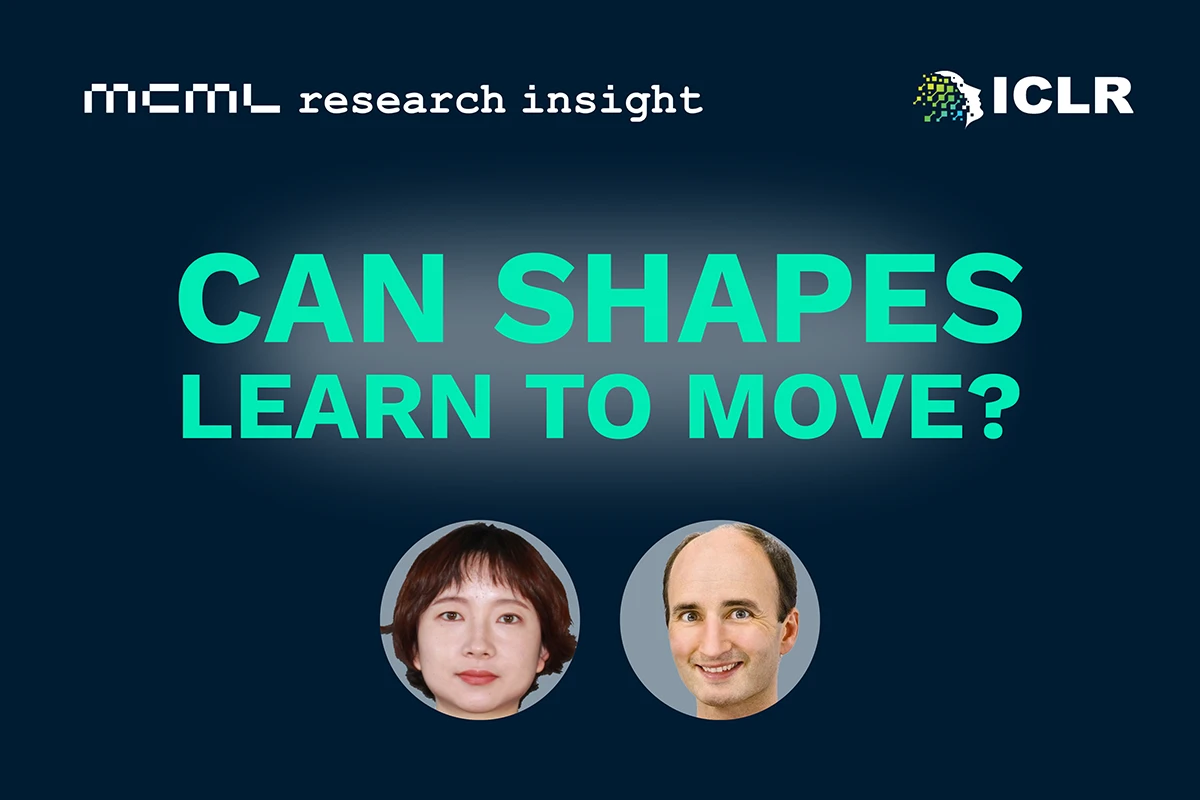
11.12.2025
From Sitting Dog to Standing: A New Way to Morph 3D Shapes
MCML Research Insight - With Lu Sang and Daniel Cremers
Ever wondered how a 3D shape can smoothly change — like a robot arm bending or a dog rising from sitting to standing — without complex simulations or hand-crafted data? Researchers from MCML and the …
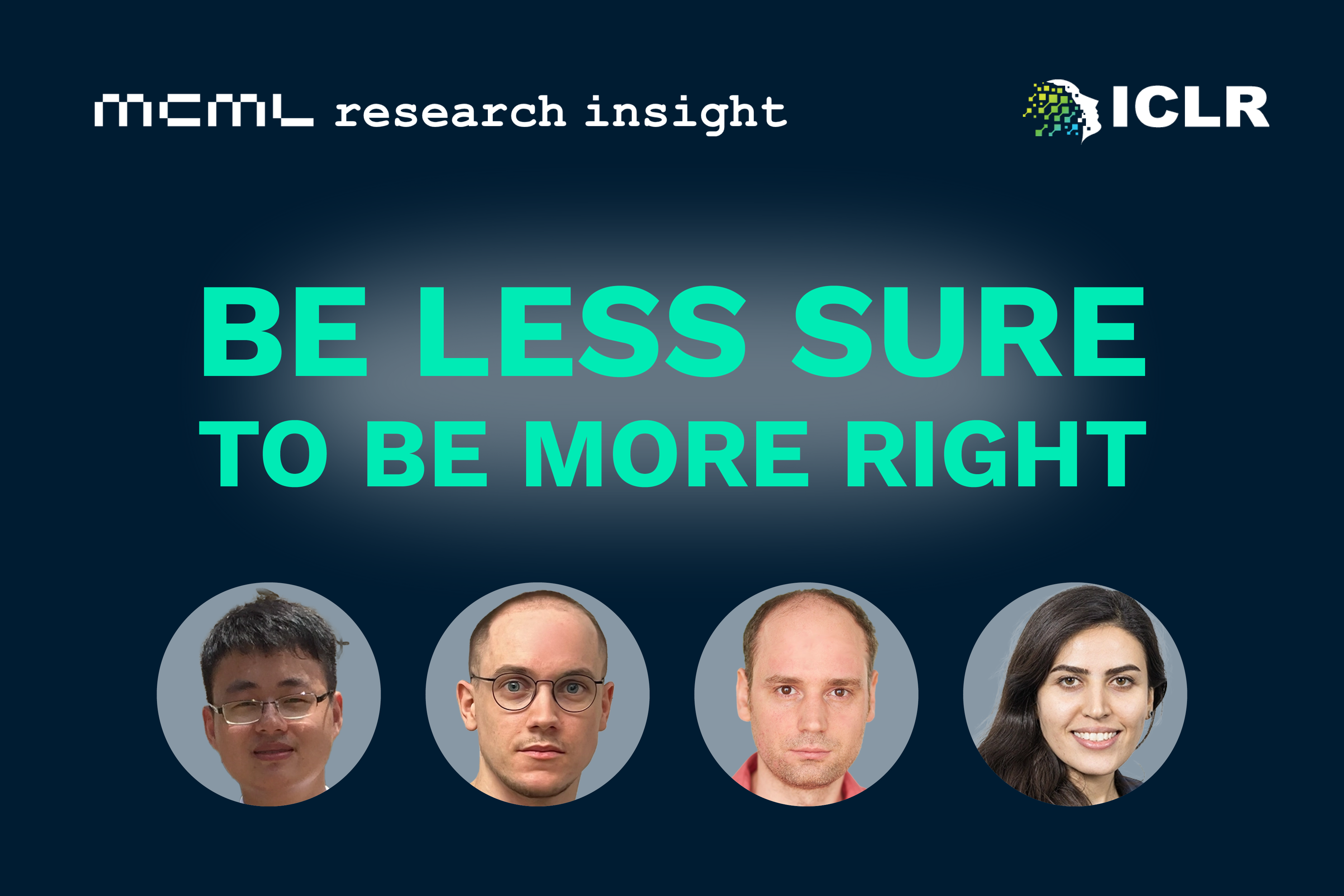
04.12.2025
When to Say "I’m Not Sure": Making Language Models More Self-Aware
MCML Research Insight - With Yawei Li, David Rügamer, Bernd Bischl, and Mina Rezaei
Large language models like ChatGPT or Gemini are now everywhere, from summarizing text to writing code or answering simple questions. But there’s one thing they still struggle with: admitting …
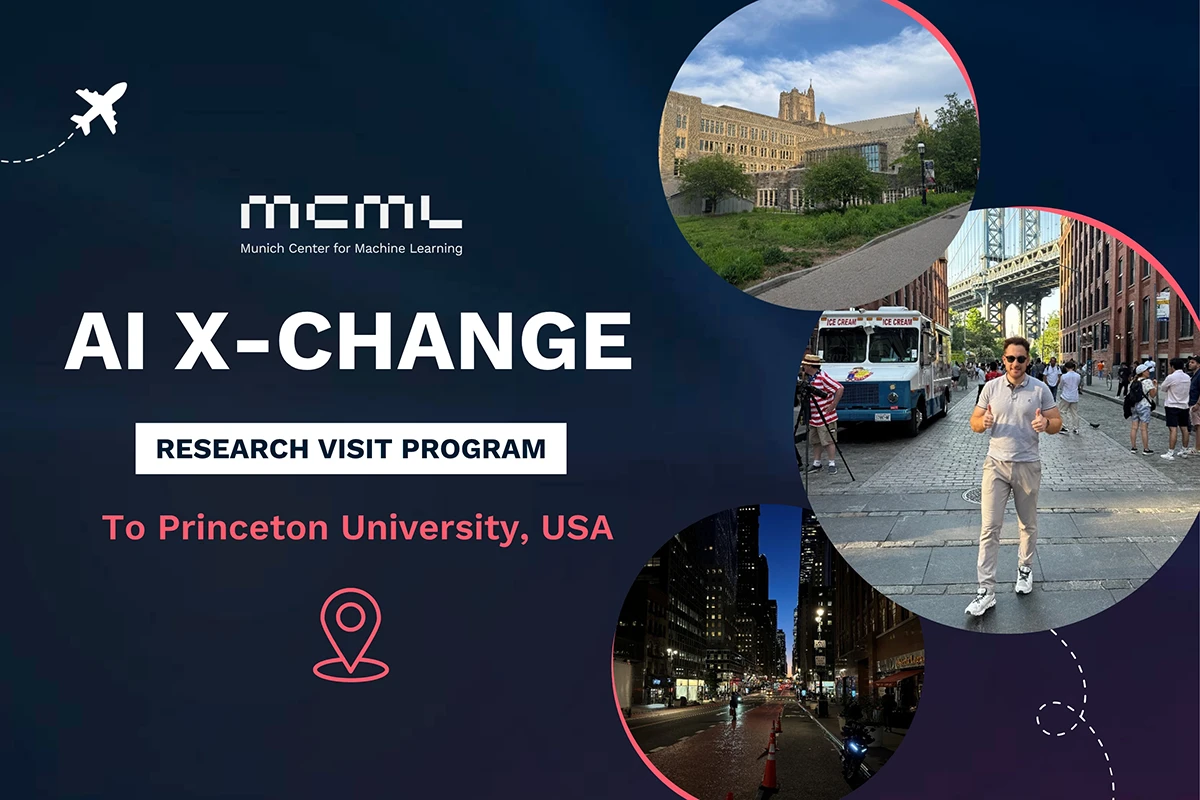
01.12.2025
Research Stay at Princeton University
Abdurahman Maarouf – Funded by the MCML AI X-Change Program
From May to July, I spent three exciting months as a visiting researcher at the Computer Science Department of Princeton University, hosted by Prof. Manoel Horta Ribeiro. The visit grew out of a …
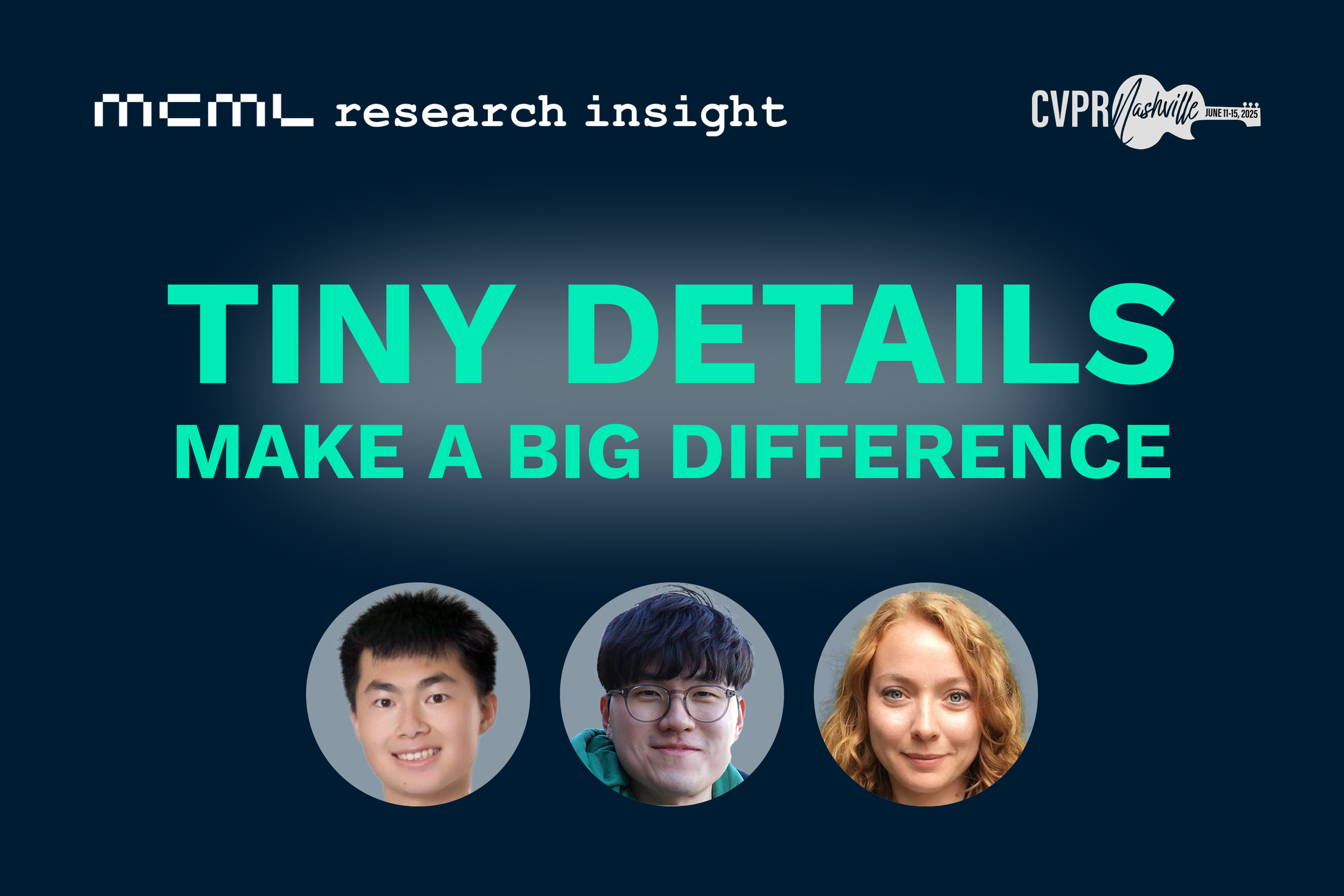
27.11.2025
Seeing the Bigger Picture – One Detail at a Time
MCML Research Insight - With Rui Xiao, Sanghwan Kim, and Zeynep Akata
Large vision-language models (VLMs) like CLIP (Contrastive Language-Image Pre-training) have changed how AI works with mixed inputs of images and text, by learning to connect pictures and words. Given …
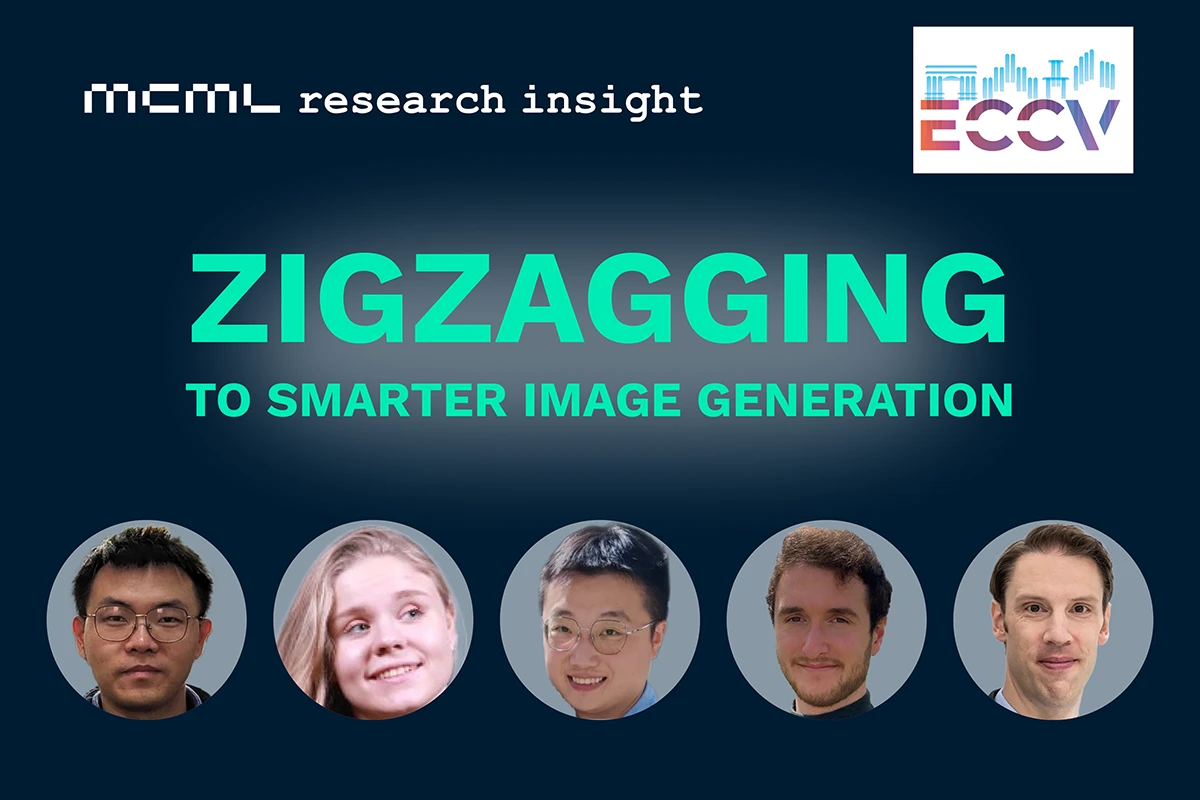
20.11.2025
Zigzag Your Way to Faster, Smarter AI Image Generation
MCML Research Insight - With Vincent Tao Hu, Olga Grebenkova, Pingchuan Ma, Johannes Schusterbauer, and Björn Ommer
State-of-the-art diffusion models like DiT and Stable Diffusion have made AI image generation incredibly powerful. But they still struggle with one big issue: scaling to large images or videos quickly …
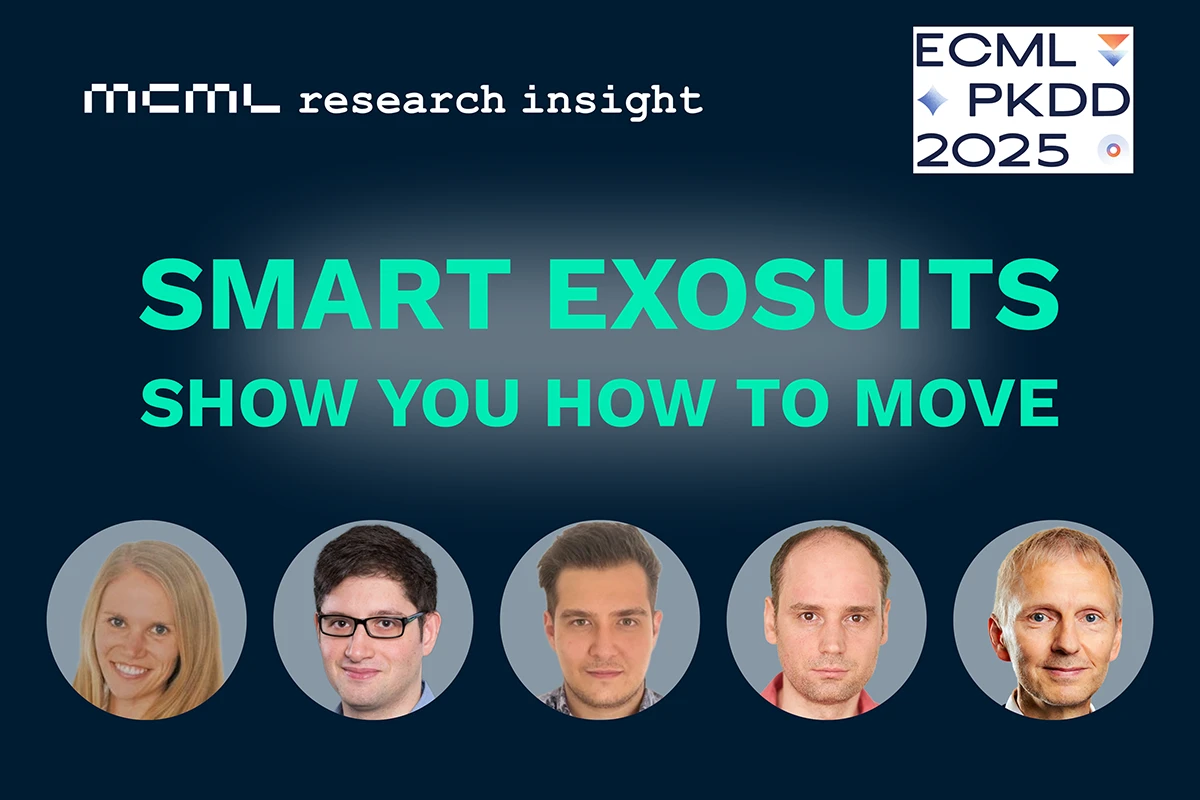
13.11.2025
Explaining AI Decisions: Shapley Values Enable Smart Exosuits
MCML Research Insight - With Julia Herbinger, Giuseppe Casalicchio, Yusuf Sale, Bernd Bischl and Eyke Hüllermeier
Picture a typical day in a warehouse: one worker lifts, bends, and carries out the same task over and over again. While the routine may seem simple, the physical toll steadily builds—affecting joints …
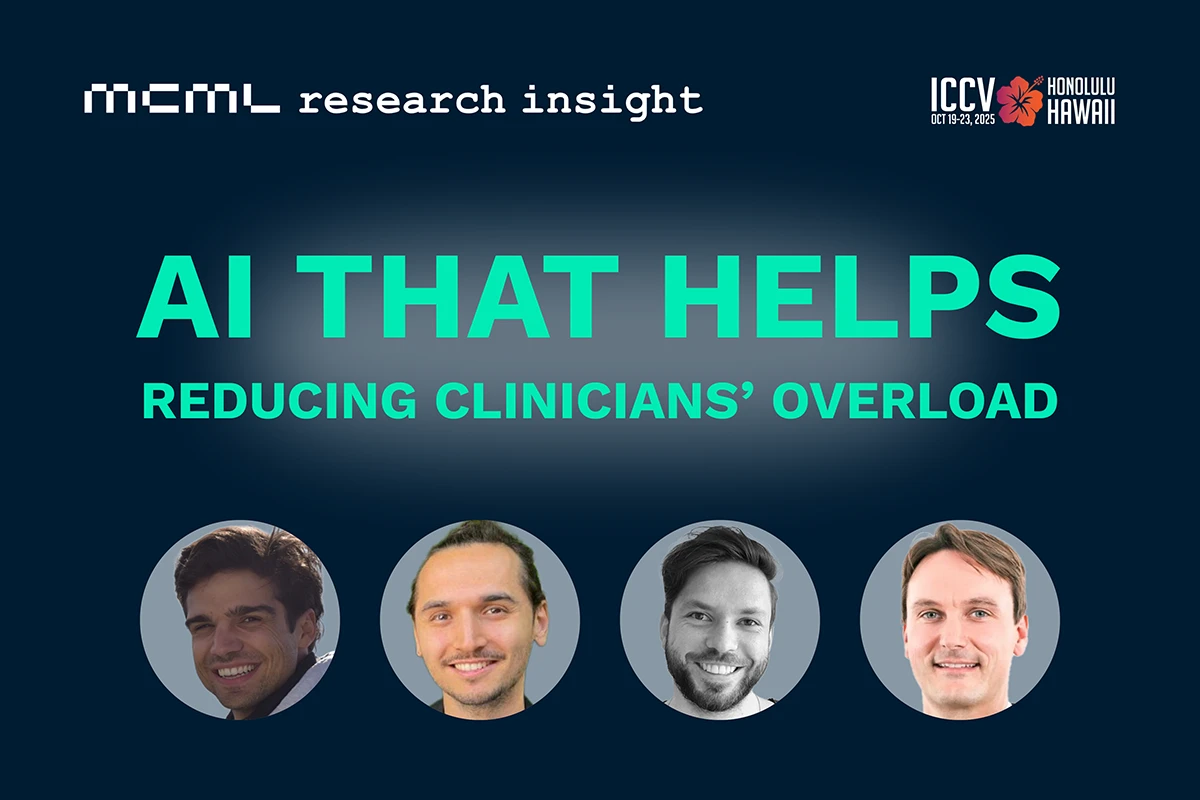
16.10.2025
SIC: Making AI Image Classification Understandable
MCML Research Insight - With Tom Nuno Wolf, Emre Kavak, Fabian Bongratz, and Christian Wachinger
Deep learning models are emerging more and more in everyday life, going as far as assisting clinicians in their diagnosis. However, their black box nature prevents understanding errors and …
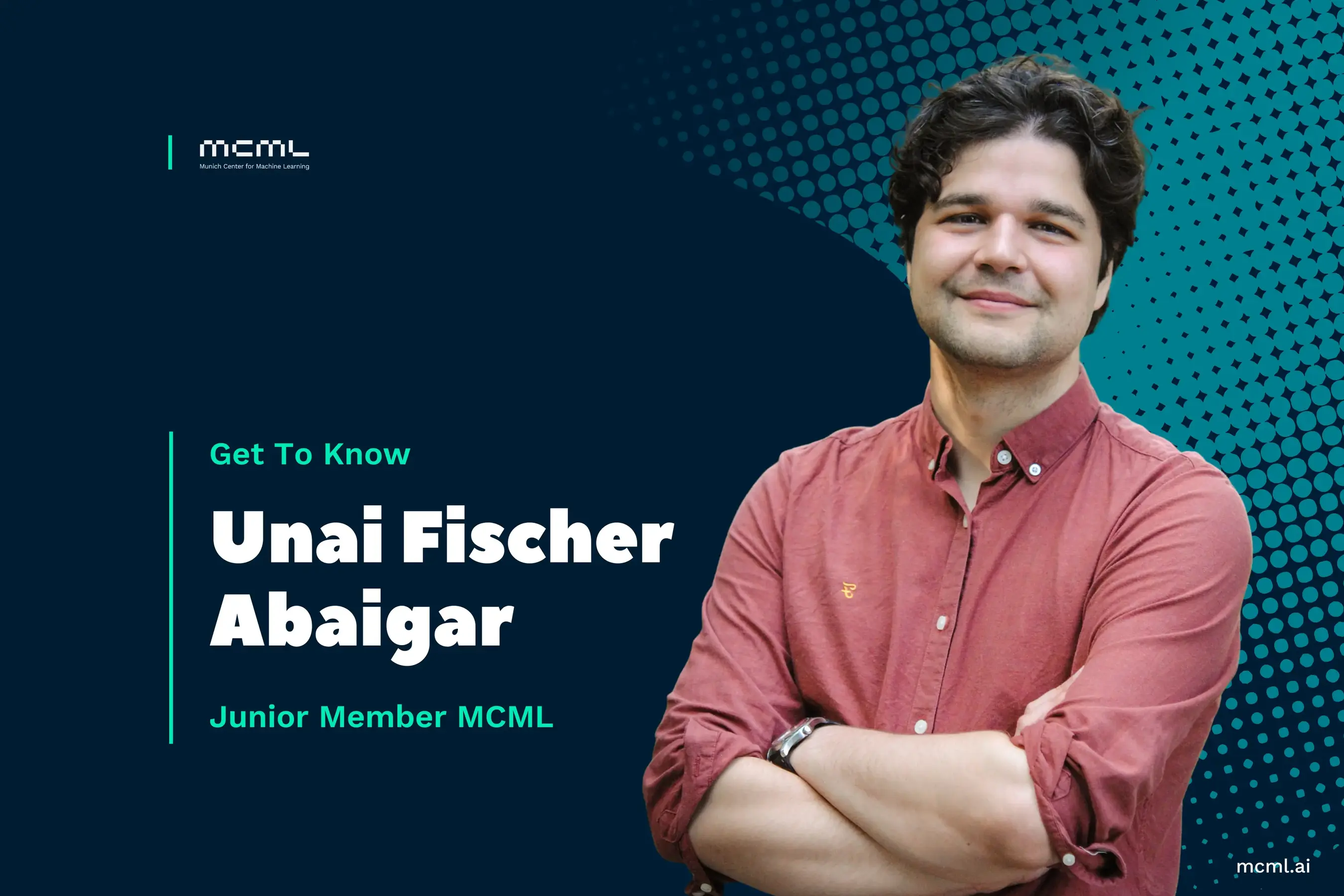
09.10.2025
Rethinking AI in Public Institutions - Balancing Prediction and Capacity
Researcher in Focus: Unai Fischer Abaigar
Unai Fischer Abaigar is a researcher at MCML whose work focuses on improving decision-making in public institutions by developing AI systems that are both fair and effective in practice.
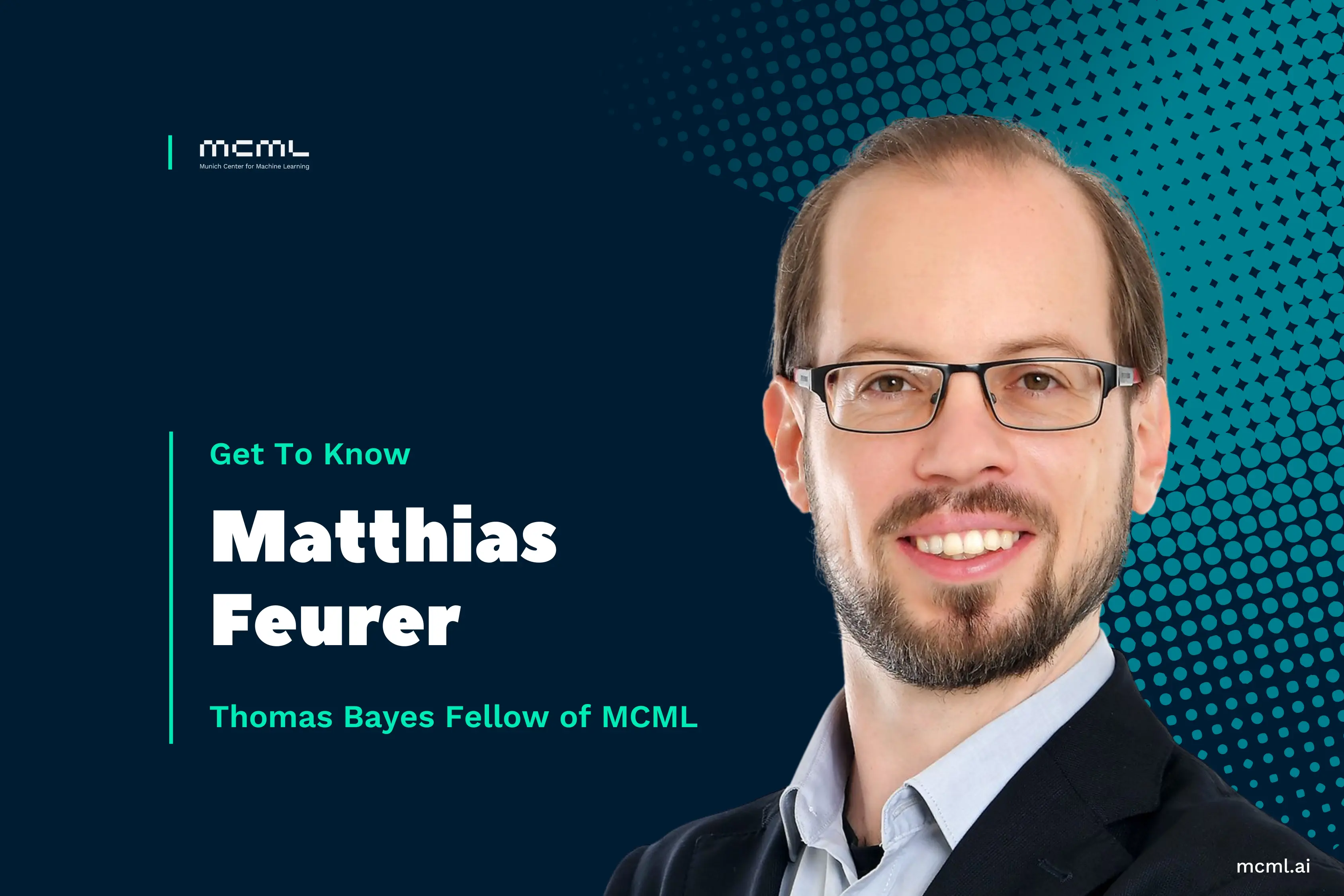
26.09.2025
Making Machine Learning More Accessible With AutoML
Researcher in Focus: Matthias Feurer
Matthias Feurer is a Thomas Bayes Fellow and interim professor, funded by the MCML and a member of the Chair of Statistical Learning and Data Science at LMU. He aims to simplify the usage of machine …
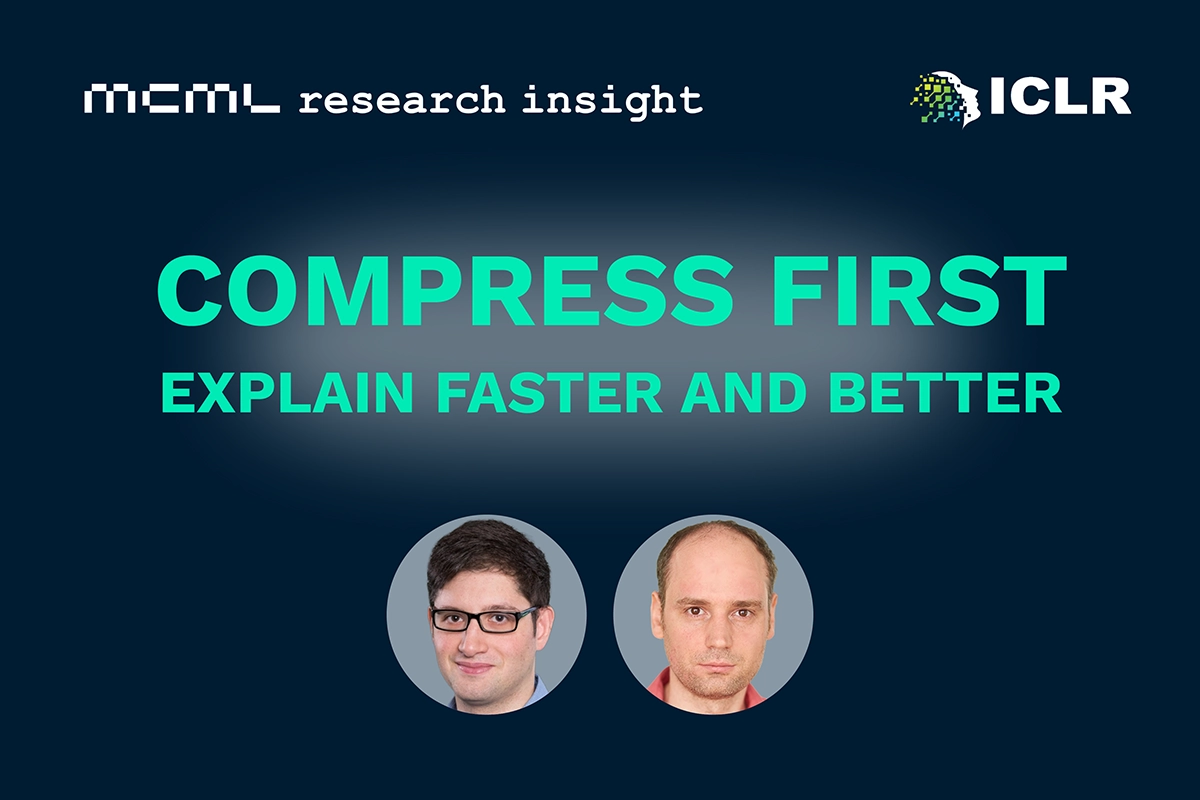
25.09.2025
Compress Then Explain: Faster, Steadier AI Explanations - With One Tiny Step
MCML Research Insight - With Giuseppe Casalicchio and Bernd Bischl
Imagine re-running feature importance plots and getting slightly different “top features.” Annoying, right? That uncertainty often comes from a quiet assumption: model explanation algorithms typically …
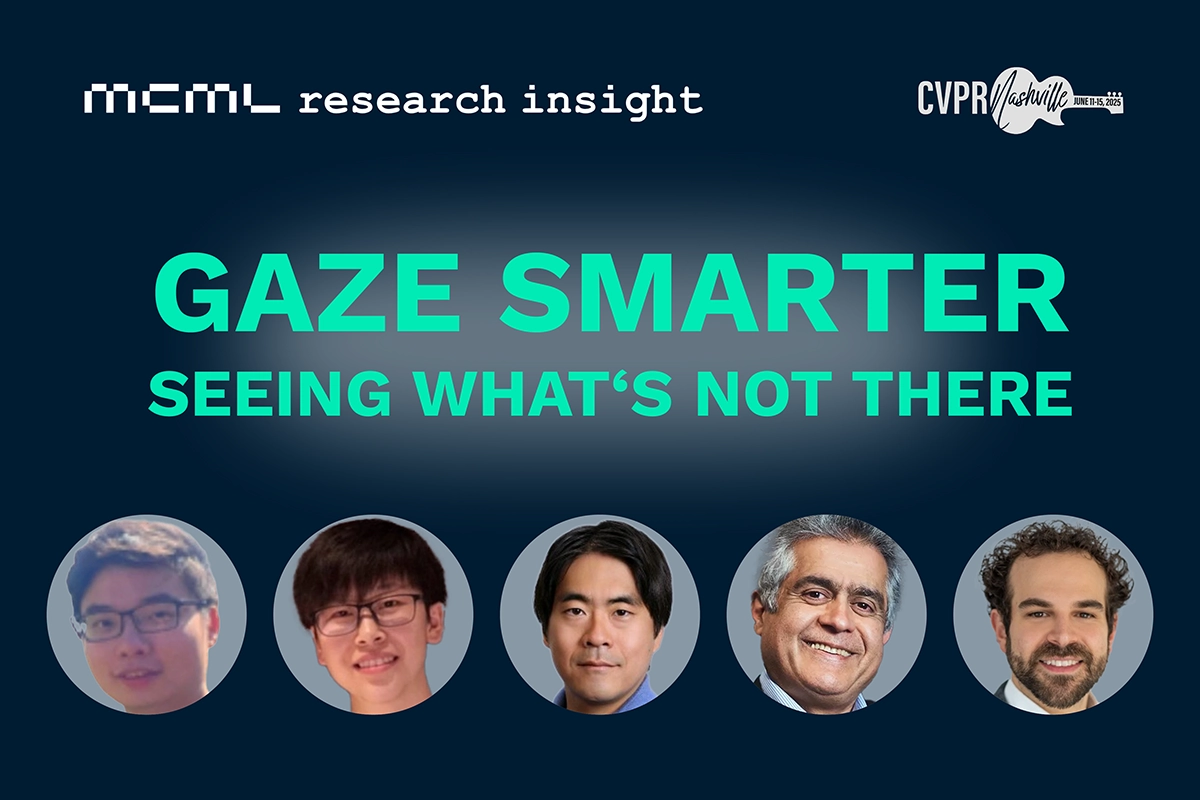
18.09.2025
GCE-Pose – Predicting Whole Objects From Partial Views
MCML Research Insight - With Weihang Li, Junwen Huang, Hyunjun Jung, Nassir Navab, and Benjamin Busam
Imagine trying to identify the full shape of a familiar object, e.g. a mug, when only its handle is visible. That’s the challenge a computer faces when estimating the pose of an object (its …
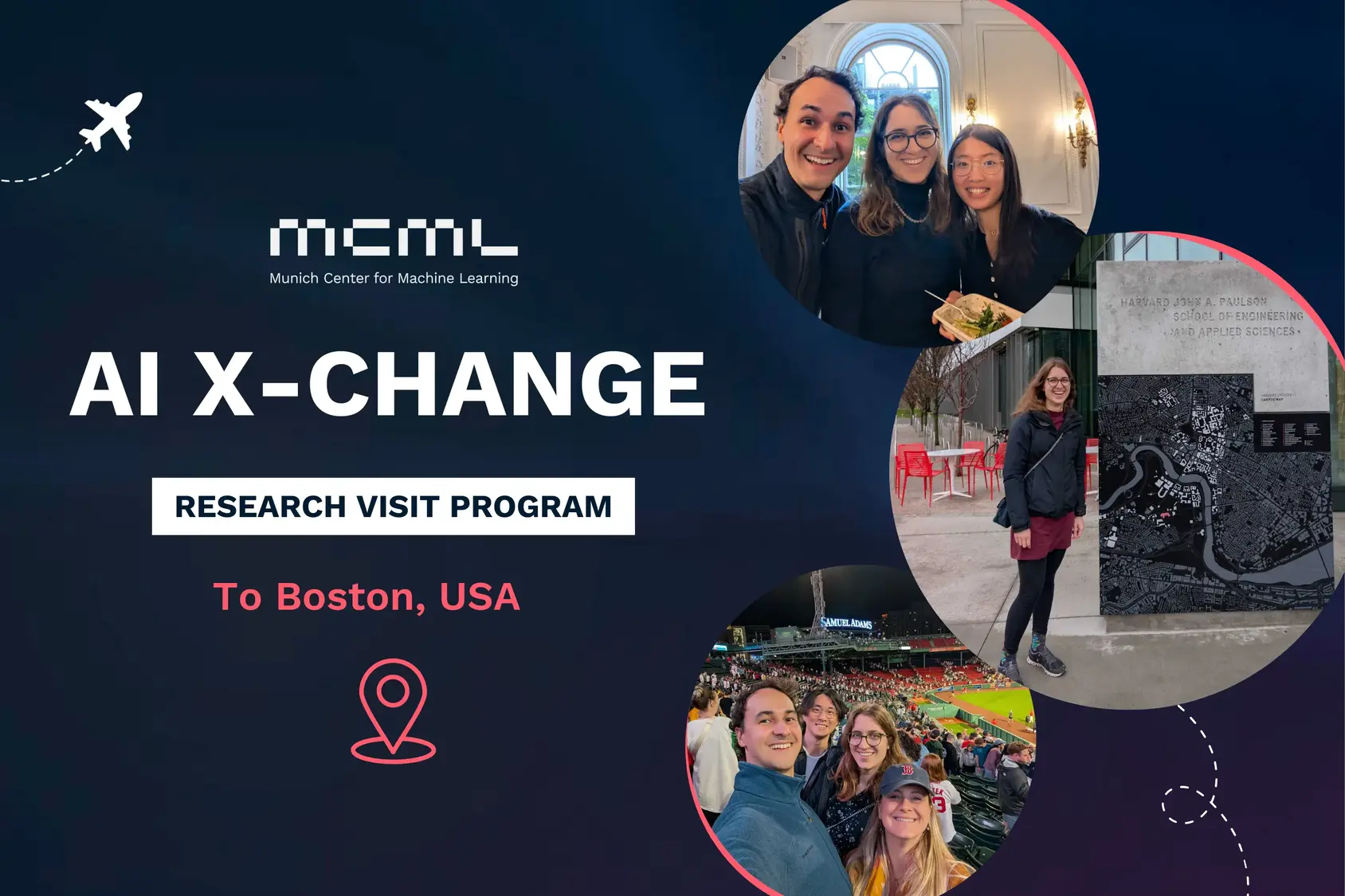
17.09.2025
Research Stay at Harvard University
Hannah Laus – Funded by the MCML AI X-Change Program
This summer, I had the incredible opportunity to spend 11 weeks at Harvard University as part of the AI X-change program, visiting the group of Flavio Calmon at the Harvard John A. Paulson School of …
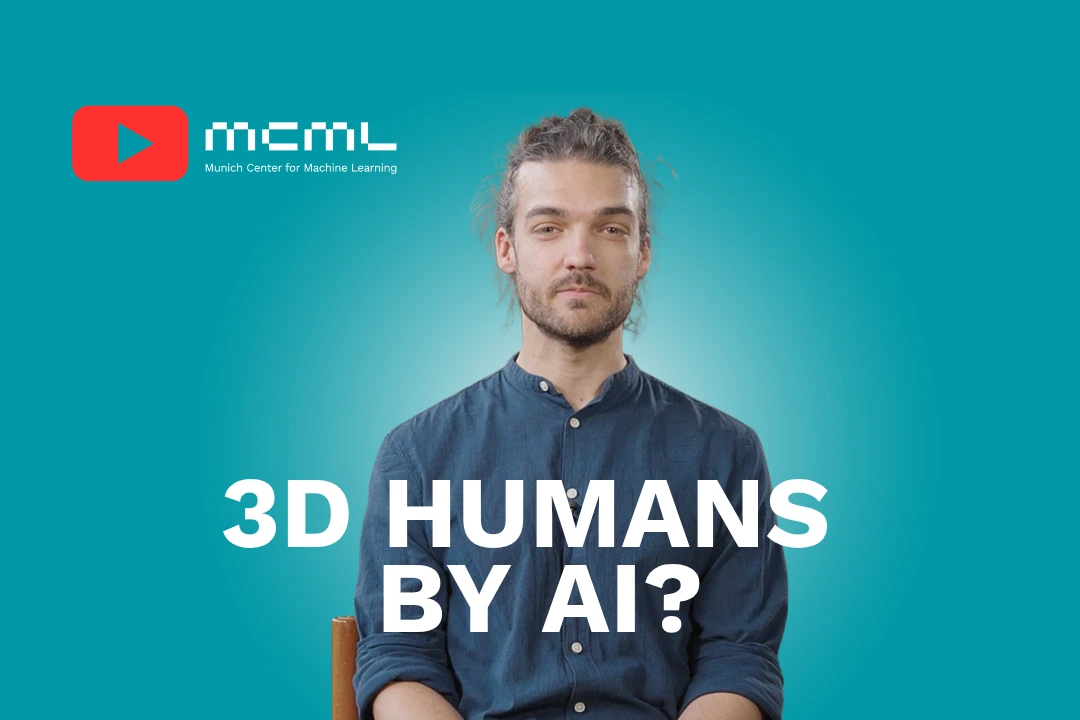
08.09.2025
3D Machine Perception Beyond Vision - With Researcher Riccardo Marin
Research Film
Can AI understand the world in 3D the way we do? Riccardo Marin, researcher at TUM and MCML, works at the intersection of computer vision and 3D geometry to teach machines how to perceive shapes, …
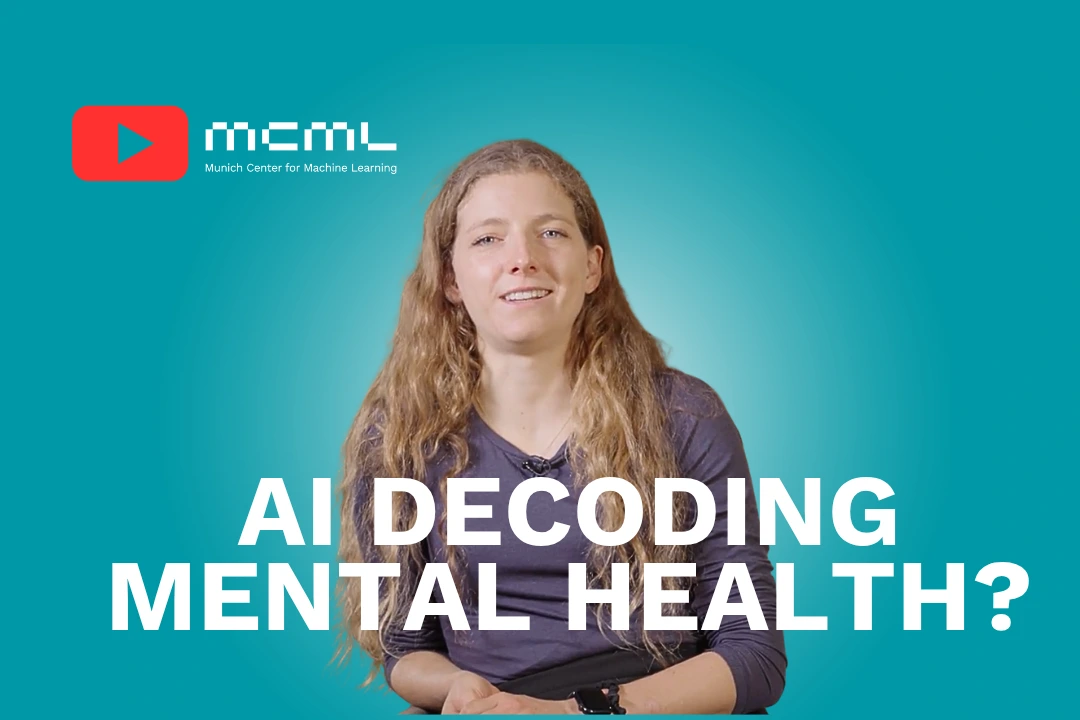
01.09.2025
AI for Personalized Psychiatry - With Researcher Clara Vetter
Research Film
Can AI help us understand why some people develop mental disorders while others remain resilient? MCML Junior Member Clara Vetter, PhD candidate in the group of our Director Daniel Rückert, uses …
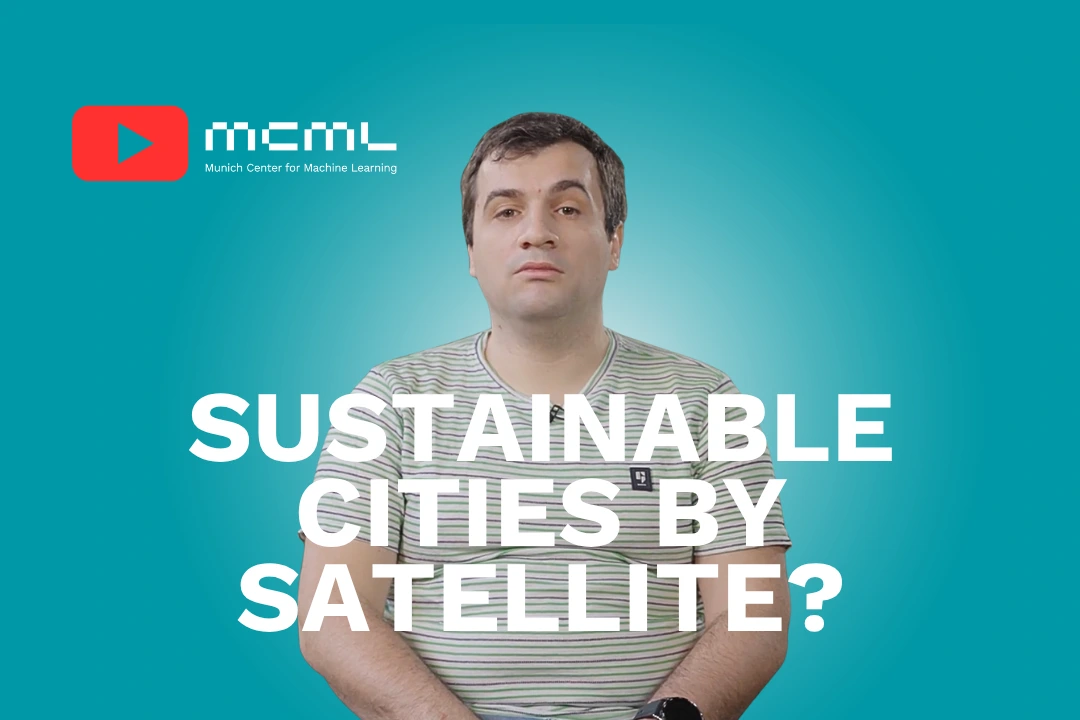
25.08.2025
Satellite Insights for a Sustainable Future - With Researcher Ivica Obadic
Research Film
Can AI from satellite imagery help us design more liveable cities, improve well-being, and ensure sustainable food production? Ivica Obadić, PhD student in the group of our PI Xiaoxiang Zhu, and MCML, …
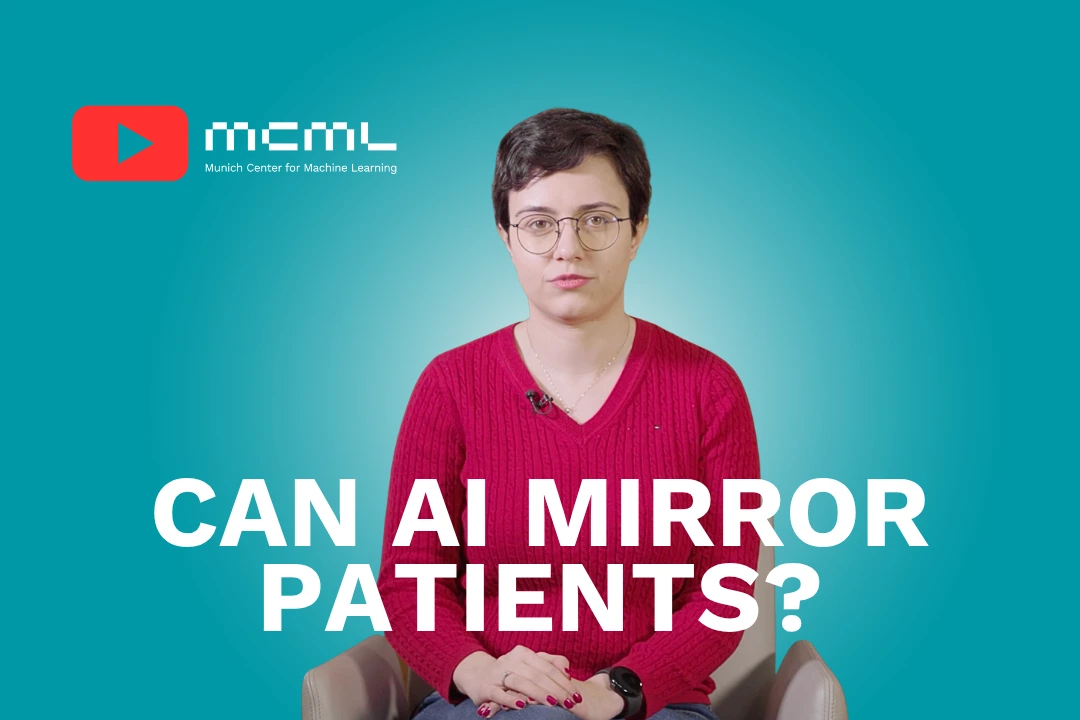
18.08.2025
Digital Twins for Surgery - With Researcher Azade Farshad
Research Film
Azade Farshad, MCML Junior Member and PhD student in the research group of Nassir Navab, researches digital twins of patients at TUM and MCML to improve personalized treatment, surgical planning, and …
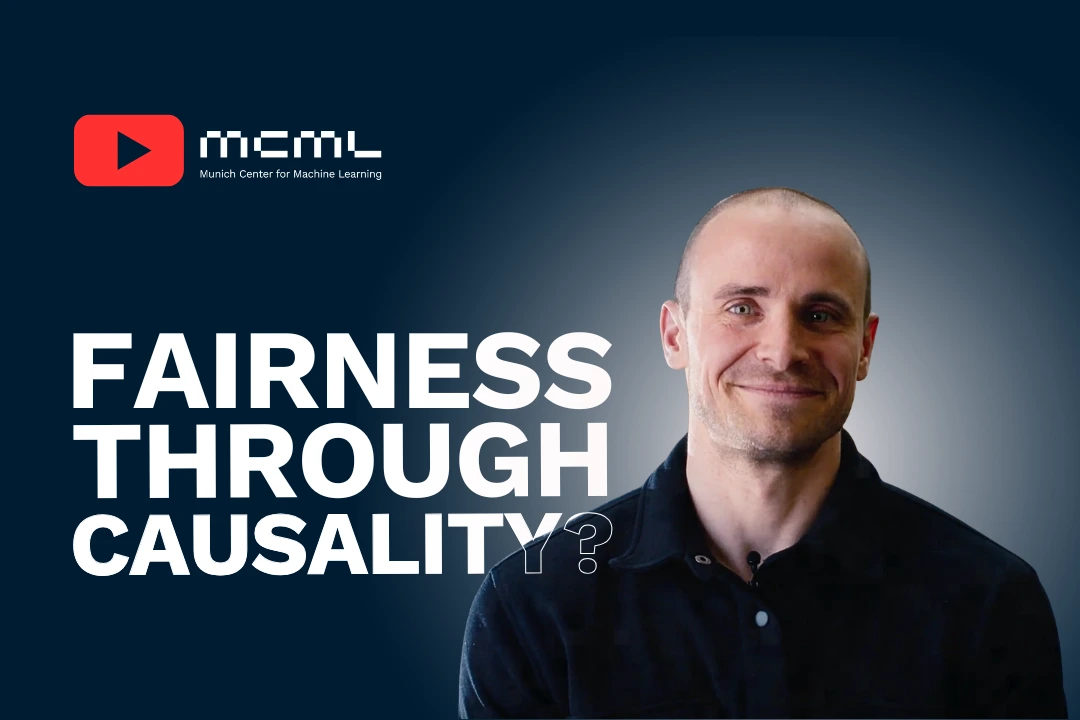
13.08.2025
From Physics Dreams to Algorithm Discovery - With Niki Kilbertus
Research Film
As a kid, Niki Kilbertus dreamed of becoming a theoretical physicist and discovering a fundamental law of nature. But when reality proved more complex, he found a new path through computer science.
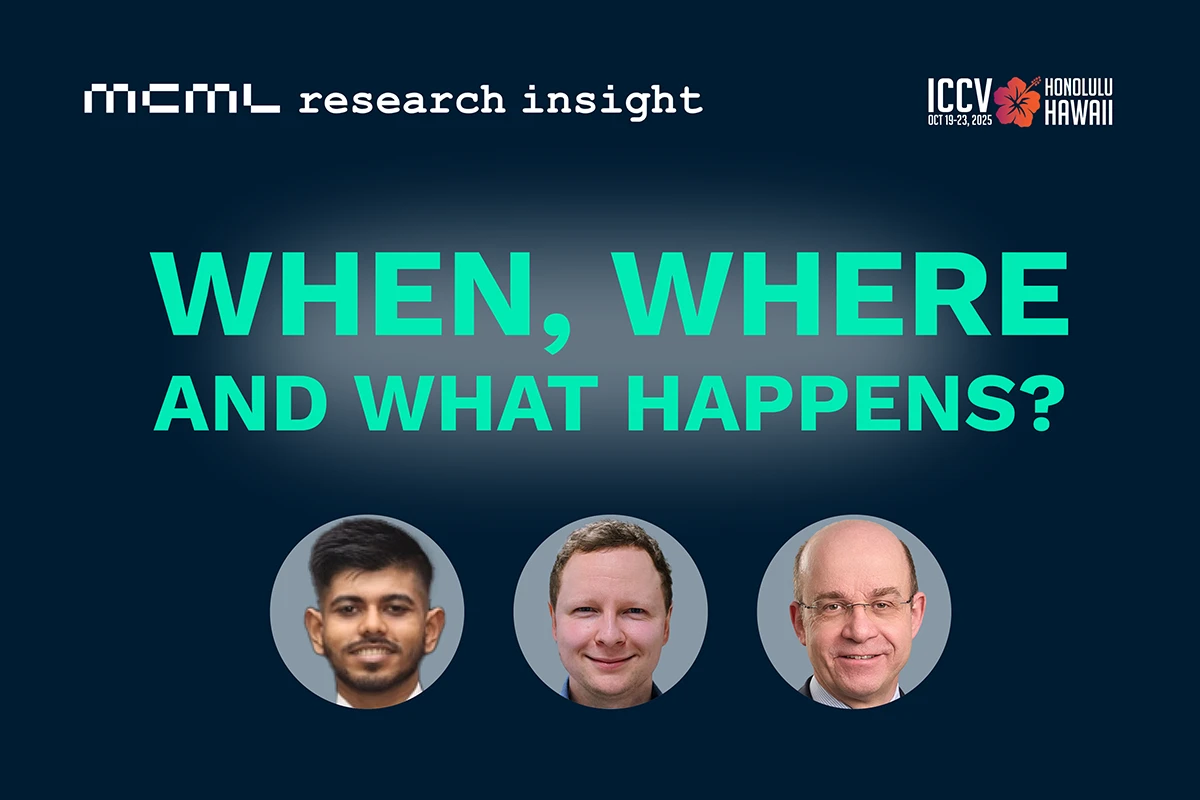
12.08.2025
Tracking Actions in Space and Time: ICCV 2025 Challenge & Workshop
MCML Research Insight - With Tanveer Hannan, Mark Weber, and Thomas Seidl
Tracking actions, not just objects: The Spatiotemporal Action Grounding Challenge and Workshop at ICCV 2025 focusses on detecting and localizing actions both in space and time within complex, …
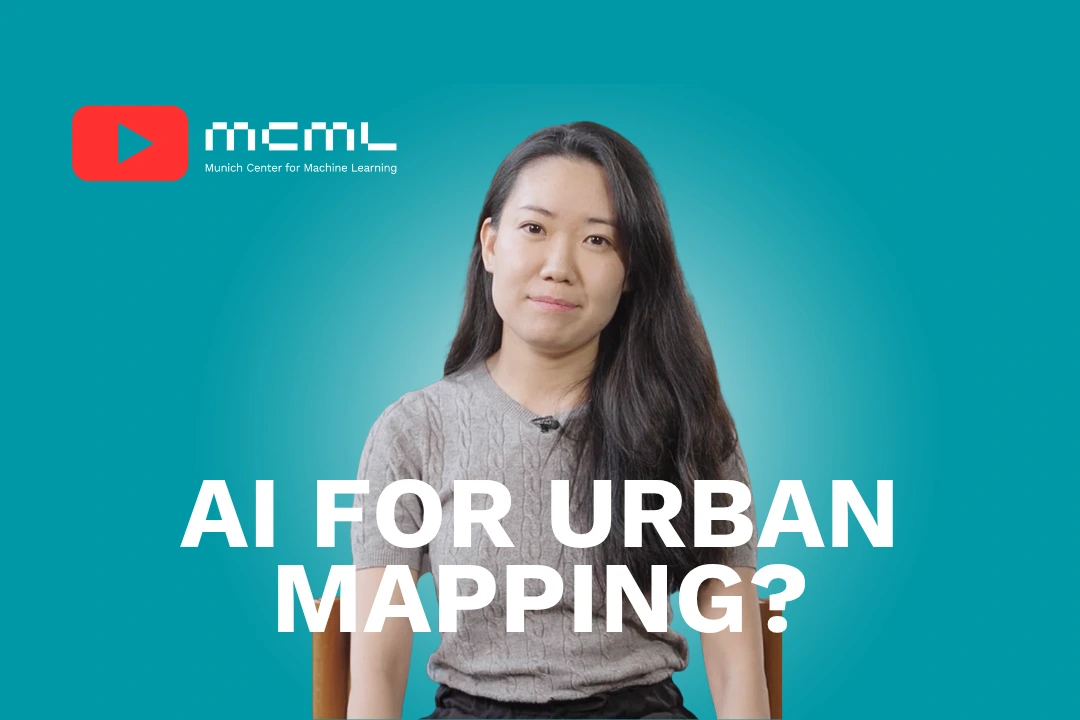
11.08.2025
AI for Dynamic Urban Mapping - With Researcher Shanshan Bai
Research Film
Imagine using social media to build a “living map” of our cities. Meet Shanshan Bai, MCML junior member and PhD student PhD student in the group of our PI Xiaoxiang Zhu, who’s …
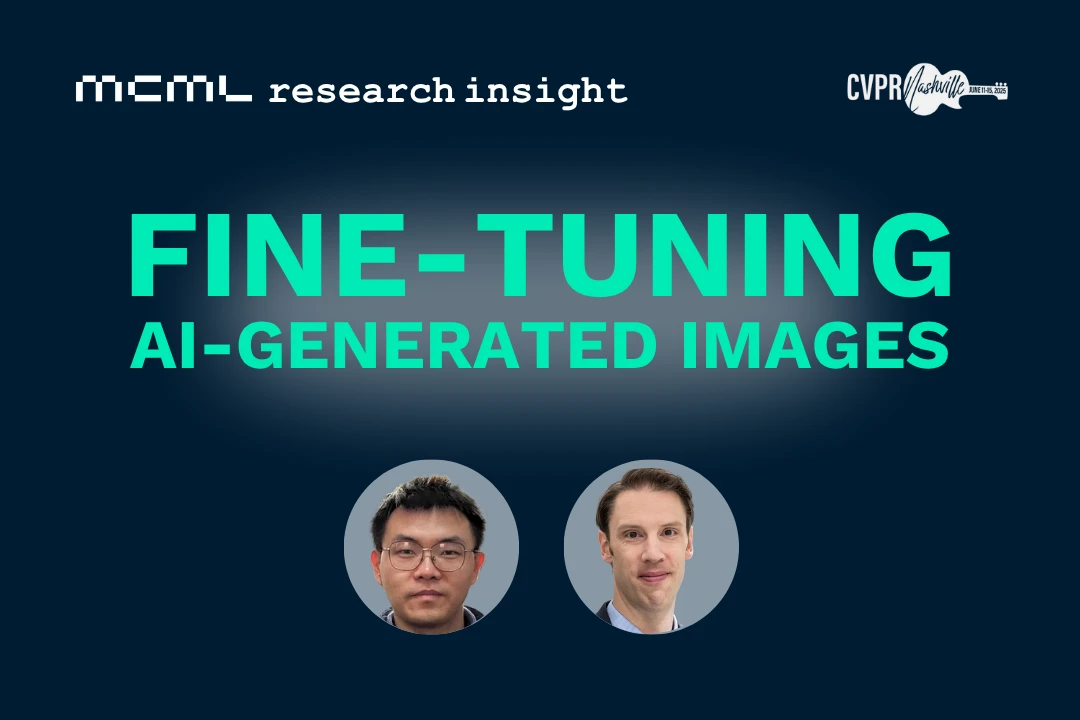
07.08.2025
Precise and Subject-Specific Attribute Control in AI Image Generation
MCML Research Insight - With Felix Krause, Vincent Tao Hu, and Björn Ommer
Text-to-image (T2I) models like Stable Diffusion have become masters at turning prompts like “a happy man and a red car” into vivid, detailed images. But what if you want the man to look just a little …
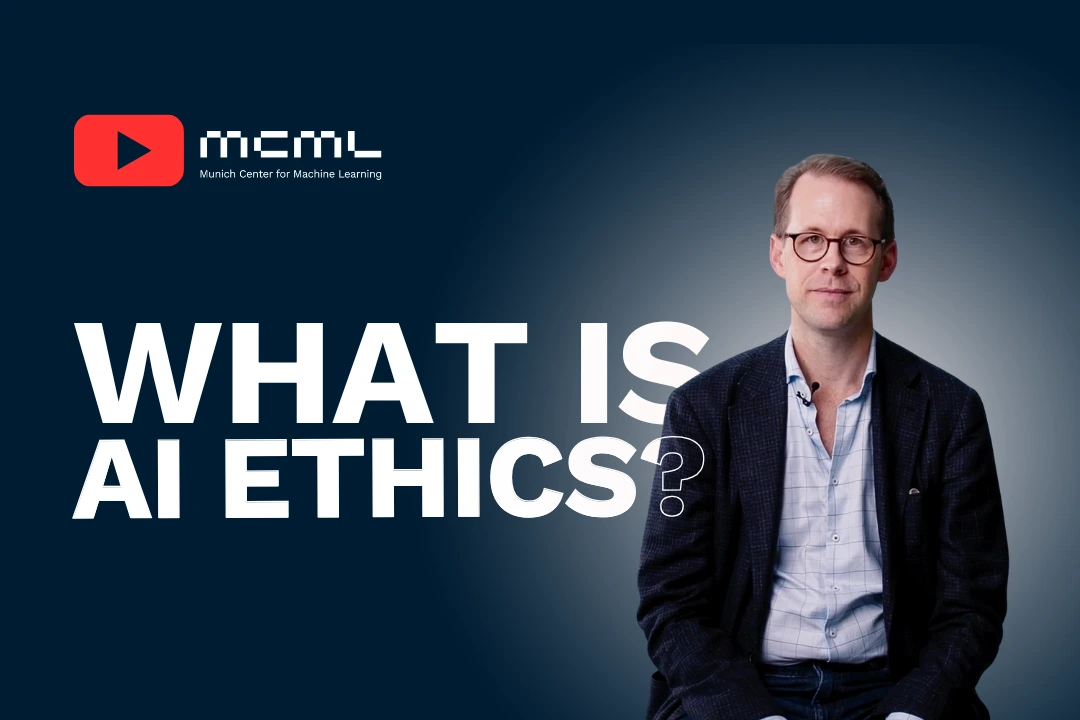
06.08.2025
What Is Intelligence—and What Kind of Intelligence Do We Want in Our Future? With Sven Nyholm
Research Film
Sven Nyholm, Chair of the Ethics of AI at LMU Munich and PI at MCML, explores one of the most urgent questions in AI: how responsibility, agency, and credit shift when intelligent systems make …
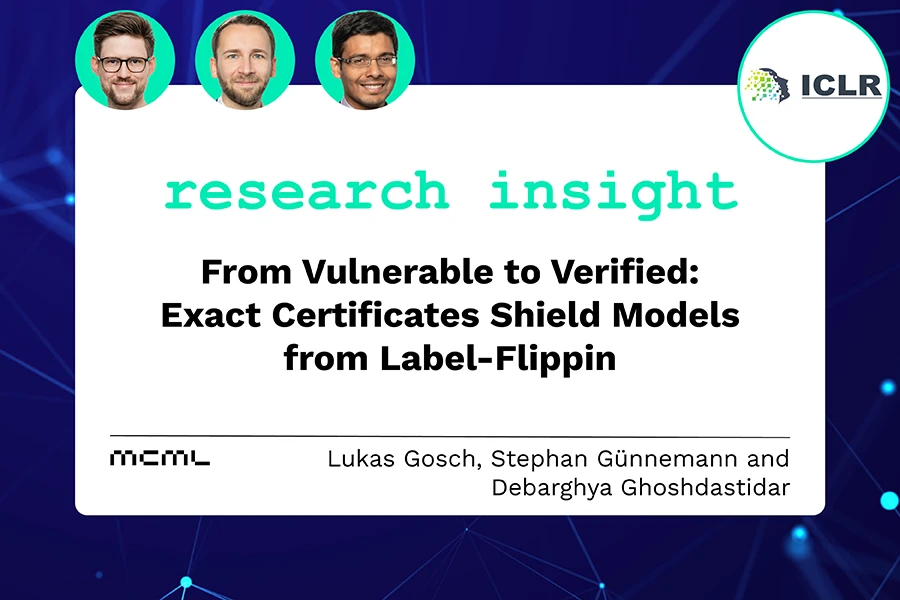
31.07.2025
From Vulnerable to Verified: Exact Certificates Shield Models From Label‑Flipping
MCML Research Insight - With Lukas Gosch, Stephan Günnemann and Debarghya Ghoshdastidar
Machine‑learning models can be undermined before training even starts. By silently altering a small share of training labels - marking “spam” as “not‑spam,” for instance - an attacker can cut accuracy …
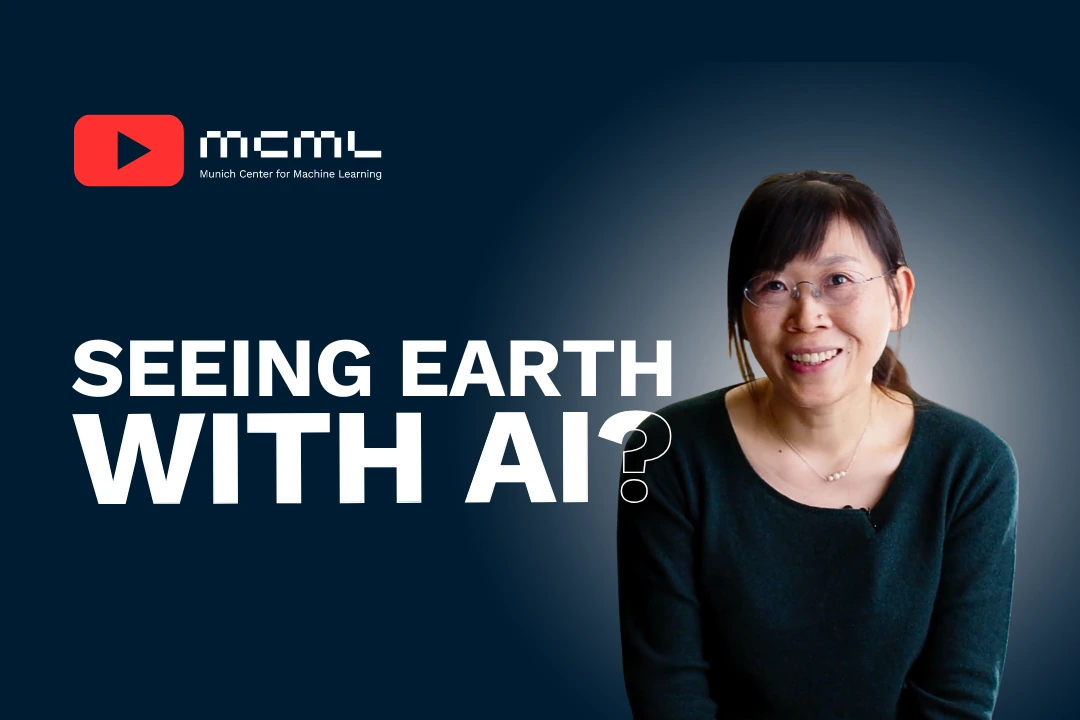
30.07.2025
Tracking Our Changing Planet From Space - With Xiaoxiang Zhu
Research Film
From dreaming of seeing the Earth from space to leading efforts to understand our planet using AI and satellite data to tackle urgent global challenges. Xiaoxiang Zhu, Chair Professor for Data Science …
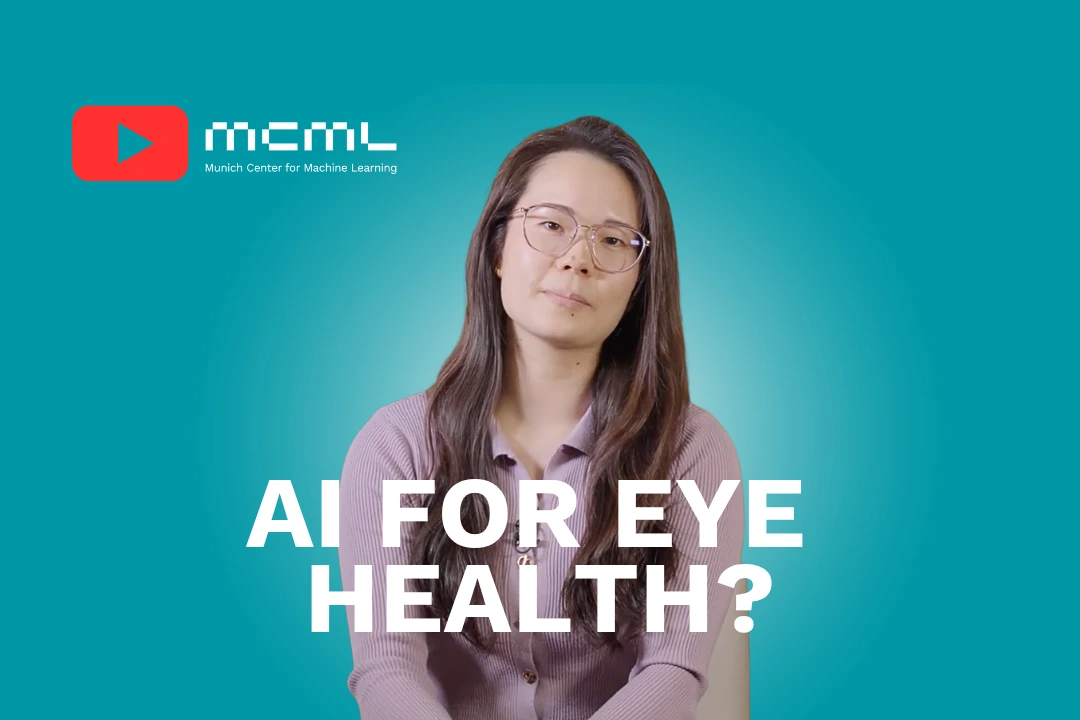
29.07.2025
AI for Enhanced Eye Diagnostics - With Researcher Lucie Huang
Research Film
Curious how AI is revolutionizing the treatment of eye diseases? Learn more about what AI can do for ophthalmology with Lucie Huang, MCML junior member and PhD student in the research group of Martin …
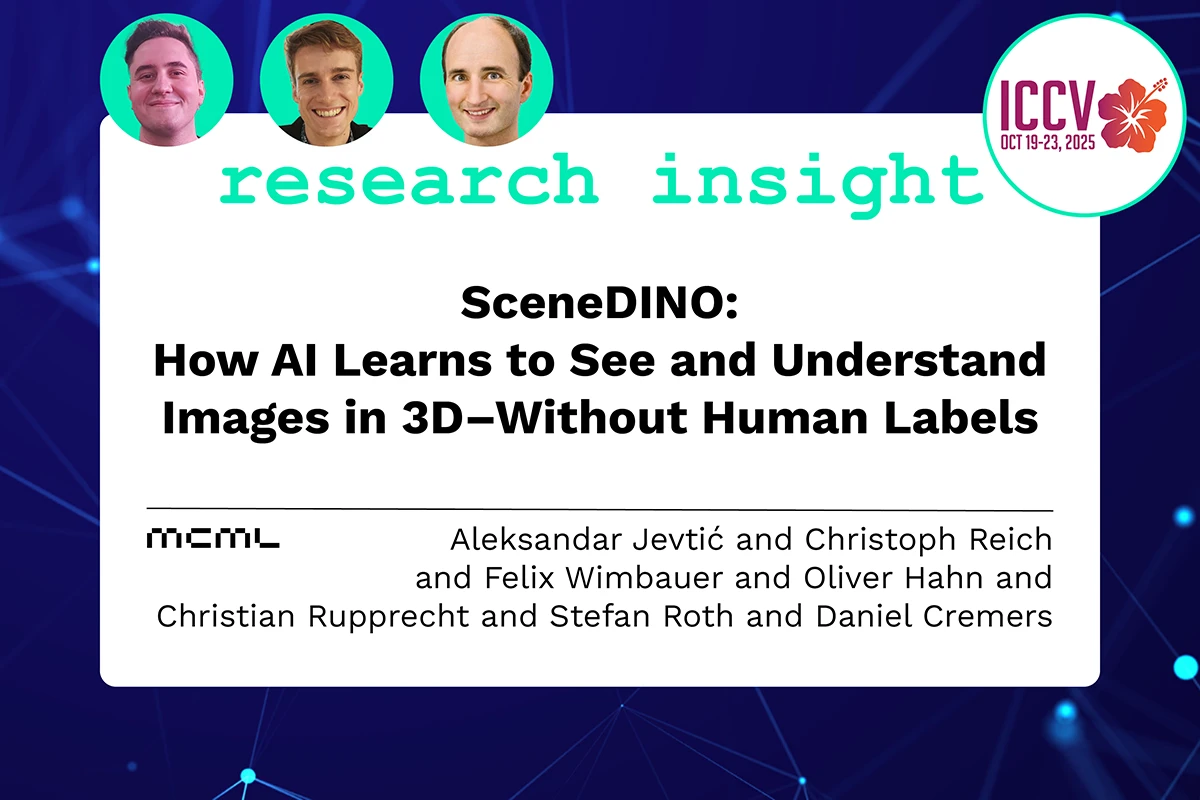
24.07.2025
SceneDINO: How AI Learns to See and Understand Images in 3D–Without Human Labels
MCML Research Insight - With Christoph Reich, Felix Wimbauer, and Daniel Cremers
Imagine looking at a single image and trying to understand the entire 3D scenery–not just what’s visible, but also what’s occluded. Humans do this effortlessly: when we see a photo of a tree, we …
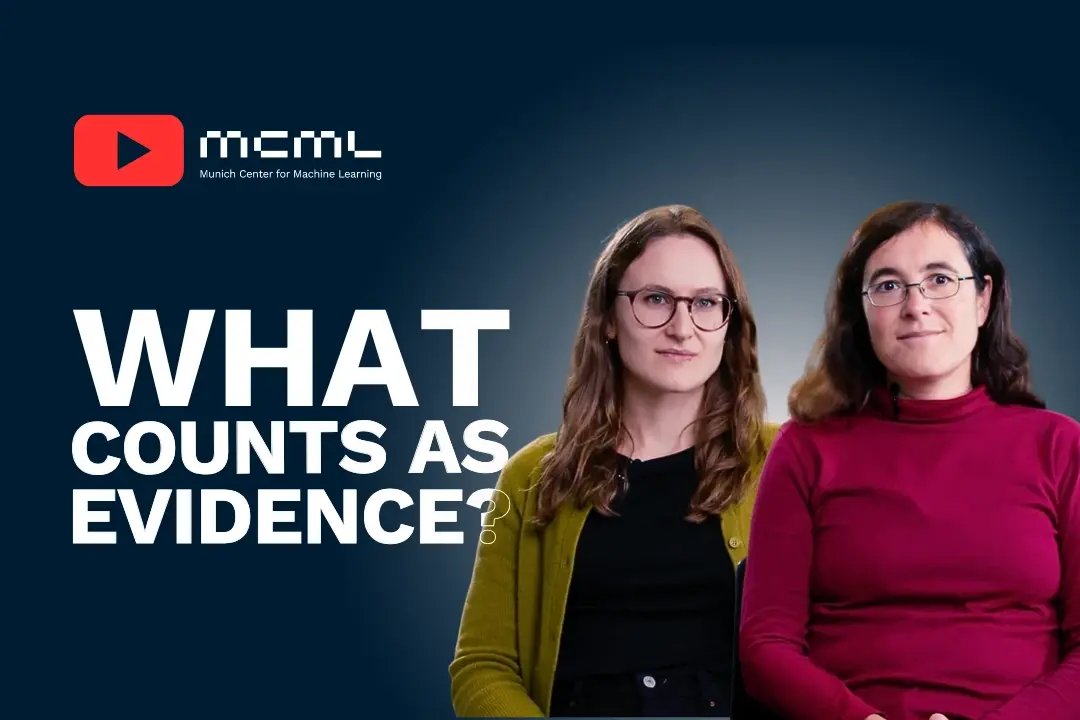
23.07.2025
How Reliable Are Machine Learning Methods? With Anne-Laure Boulesteix and Milena Wünsch
Research Film
Often a new machine learning method claims to outperform the last. Whether it’s in bioinformatics, finance, or image recognition, the message is the same: this algorithm is faster, more accurate, more …
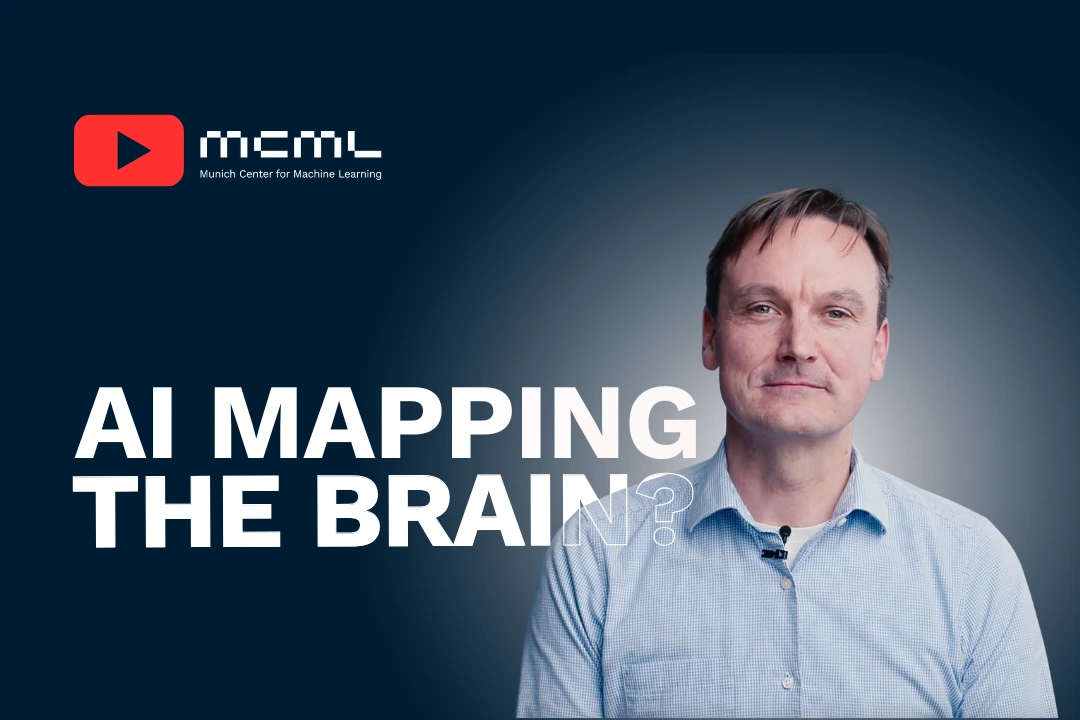
16.07.2025
AI-Powered Cortical Mapping for Neurodegenerative Disease Diagnoses - With Christian Wachinger
Research Film
Christian Wachinger, Professor of AI in Radiology at the Technical University of Munich and PI at MCML, is developing AI systems to precisely reconstruct the brain’s cortex — an extremely thin and …
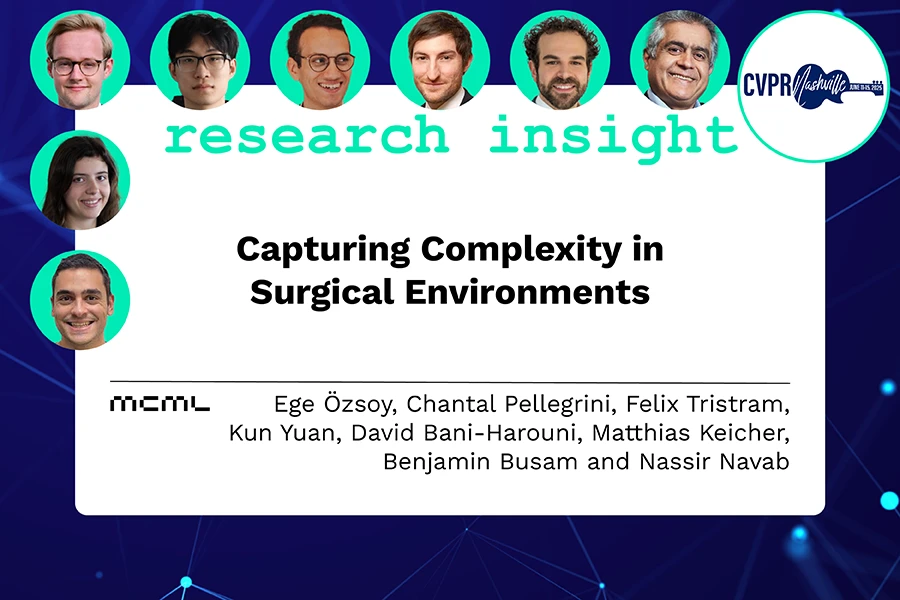
10.07.2025
Capturing Complexity in Surgical Environments
MCML Research Insight - With Ege Özsoy, Chantal Pellegrini, Felix Tristram, Kun Yuan, David Bani-Harouni, Matthias Keicher, Benjamin Busam and Nassir Navab
Imagine an operating room - a space filled with intricate interactions, rapid decisions, and precise movements. Now, imagine capturing every detail of such a complex environment not just visually but …

10.07.2025
Beyond Prediction: How Causal AI Enables Better Decision-Making - With Stefan Feuerriegel
Research Film
“A good prediction is rarely a good decision.” This may sound surprising in an age where AI is often celebrated for its predictive power. But when it comes to making real-world decisions — …
2024-11-22 - Last modified: 2026-02-05
